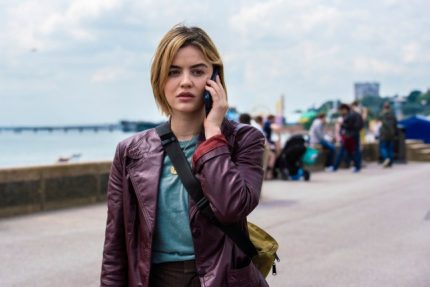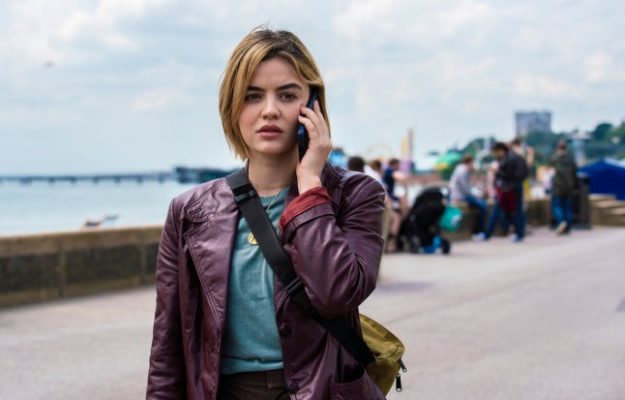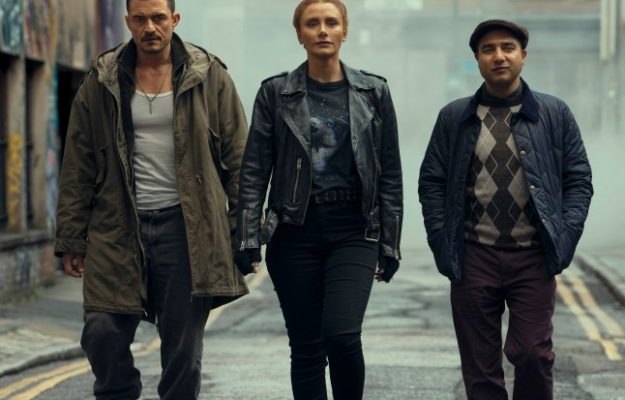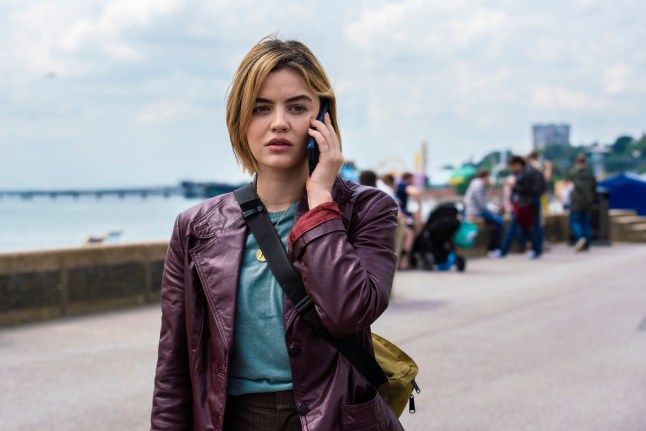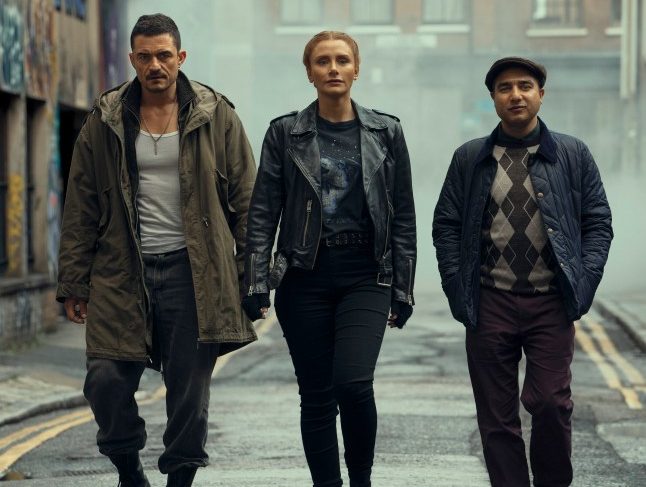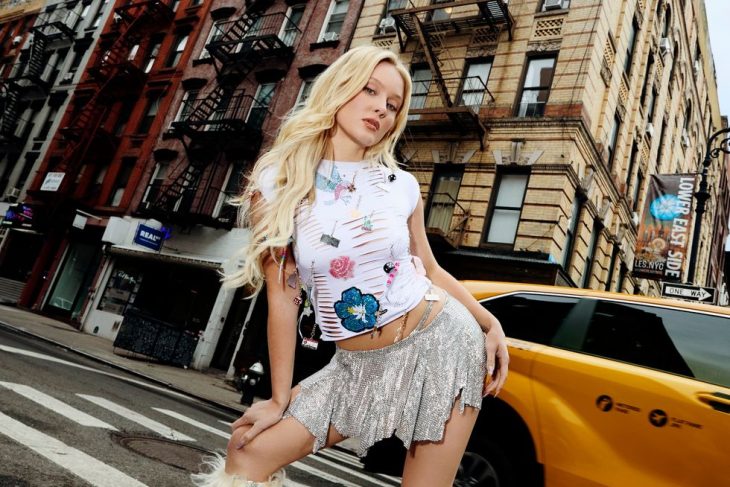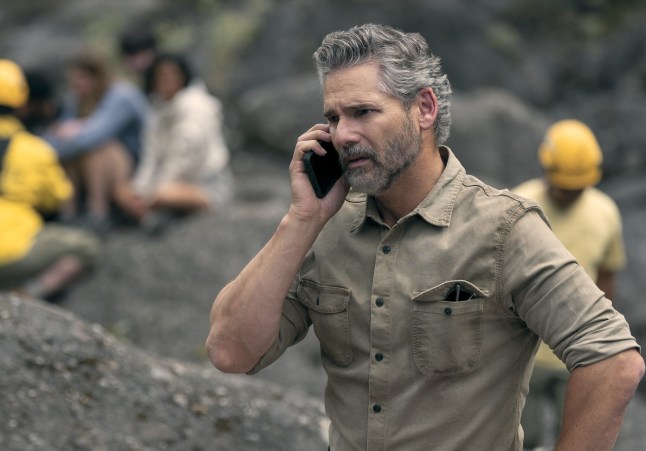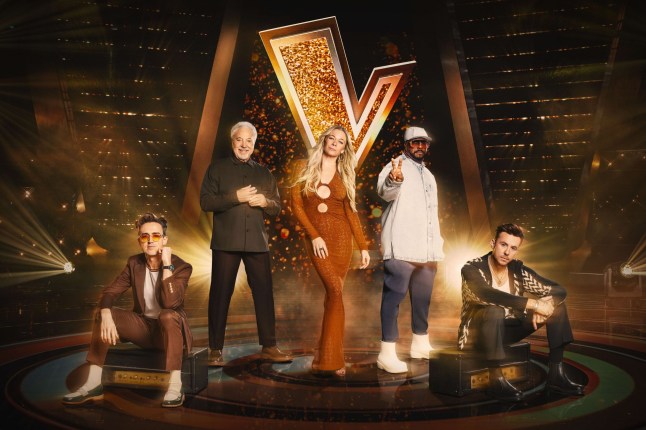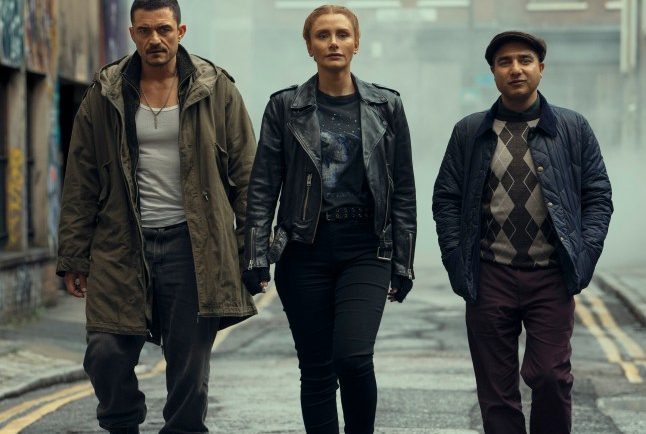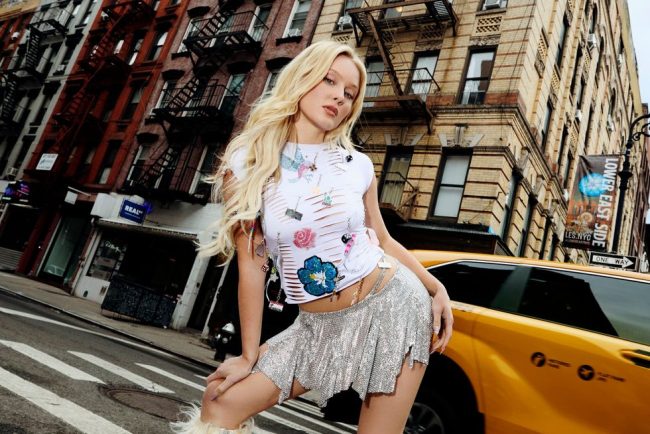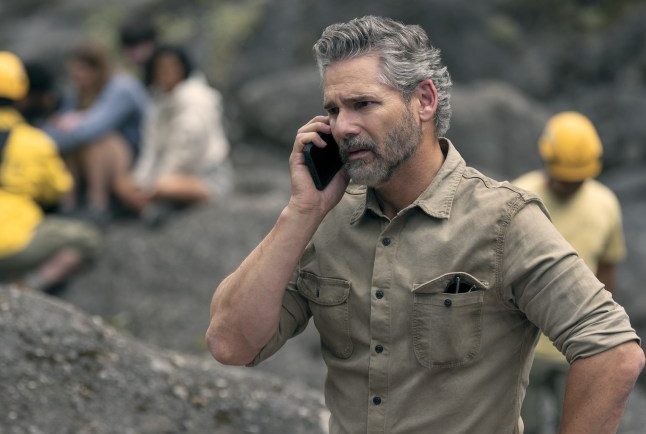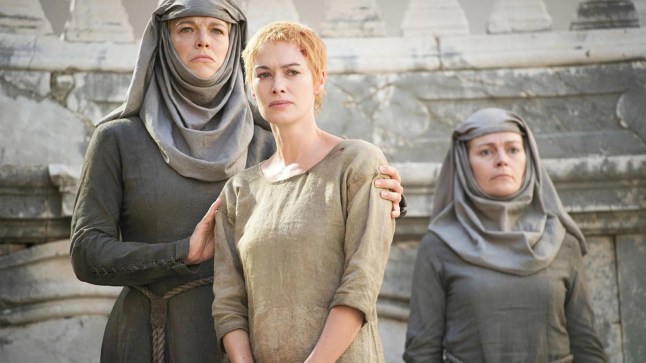
The degrading moment the ‘best TV show’ crossed a line and never looked back
10 years ago today, my favourite show of the 2010s crossed a line (Picture: HBO) There have been plenty of TV moments that critics and viewers have declared ‘crossed a line’. I’m thinking of shocking moments like when Spike assaulted Buffy, the time Negan introduced […]
TVThe 5 worst mistakes of the Nintendo Switch 2 launch (and why it doesn’t matter) – Reader’s Feature
The Switch 2 has not had a flawless launch (Credits: AFP via Getty Images) A reader breaks down the Switch 2 launch line-up and lists the mistakes he feels Nintendo has made, from the marketing to the prices. I’m not sure if anyone seriously thought […]
GamingNintendo Switch 2: does it deserve the hate? – Reader’s Feature
Is it overrated or underrated? (Nintendo) A reader counters five of the most common criticisms against the Nintendo Switch 2, arguing that concerns about its pricing and lack of games are overstated. I received the Switch 2 earlier this week after bagging myself a last […]
Gaming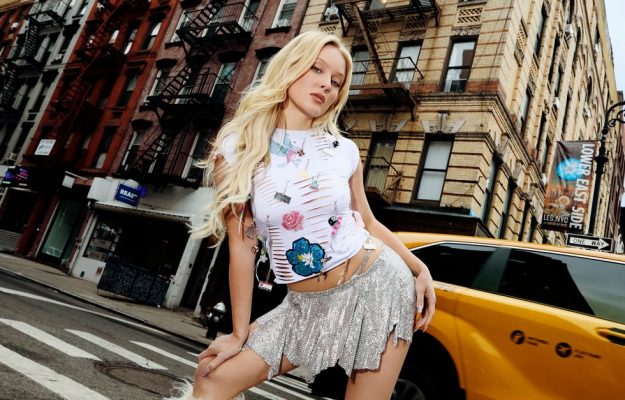
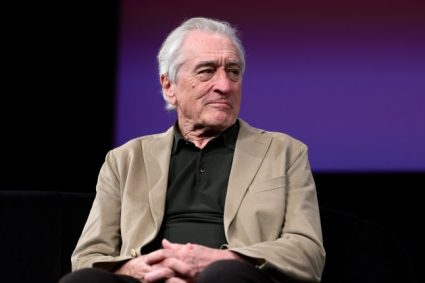
Robert De Niro, 81, has ‘possibly’ realised how good he is at acting
{“@context”:”https://schema.org”,”@type”:”VideoObject”,”name”:”Metro.co.uk”,”duration”:”T26S”,”thumbnailUrl”:”https://i.dailymail.co.uk/1s/2025/06/03/14/98997607-0-image-a-1_1748956803197.jpg”,”uploadDate”:”2025-06-03T14:19:32+0100″,”description”:”Legendary actor Robert De Niro speaks exclusively with Metro.co.uk’s Rishma Dosani.”,”contentUrl”:”https://videos.metro.co.uk/video/met/2025/06/03/9077877543587627789/480x270_MP4_9077877543587627789.mp4″,”height”:270,”width”:480} To view this video please enable JavaScript, and consider upgrading to a web browser that supports HTML5 video Up Next Previous Page Next Page window.addEventListener(‘metroVideo:relatedVideosCarouselLoaded’, function(data) { if (typeof(data.detail) === ‘undefined’ || typeof(data.detail.carousel) === […]
Film
To view this video please enable JavaScript, and consider upgrading to a web
browser that
supports HTML5
video
Up Next
window.addEventListener(‘metroVideo:relatedVideosCarouselLoaded’, function(data) {
if (typeof(data.detail) === ‘undefined’ || typeof(data.detail.carousel) === ‘undefined’ || typeof(data.detail.carousel.el_) === ‘undefined’) {
return;
}
var player = data.detail.carousel.el_;
var container = player.closest(‘.metro-video-player’);
var placeholder = container.querySelector(‘.metro-video-player__up-next-placeholder’);
container.removeChild(placeholder);
container.classList.add(‘metro-video-player–related-videos-loaded’);
});
Robert De Niro has opened up about his honest impression of watching himself back on the big screen, revealing there are some moments he ‘possibly’ realises just how good he is.
The acting icon has fronted some of the most iconic films in cinema, including Killers of the Flower Moon, Goodfellas, The Godfather franchise, Raging Bull, A Bronx Tale and Jackie Brown – to name just a few.
At this year’s Tribeca Film Festival, which kicks off today in Manhattan, the 81-year-old will be reminiscing over his efforts in Casino and Meet the Parents at special anniversary events, alongside Martin Scorsese and Ben Stiller respectively.
Speaking to Metro to celebrate the annual event, which he co-founded with producer Jane Rosenthal in 2002, the dad-of-seven touched on how it feels to reflect on his time in the spotlight.
When asked whether rewatching those projects makes him realise just how good he is in front of the camera, he couldn’t help but give us the most Robert De Niro answer ever, quipping: ‘That’s possible…
‘Most of the time you’re just sort of looking and [squirming] but it’s possible. Especially if you have many, many years distance between the time that you did it and the time you’re seeing it.
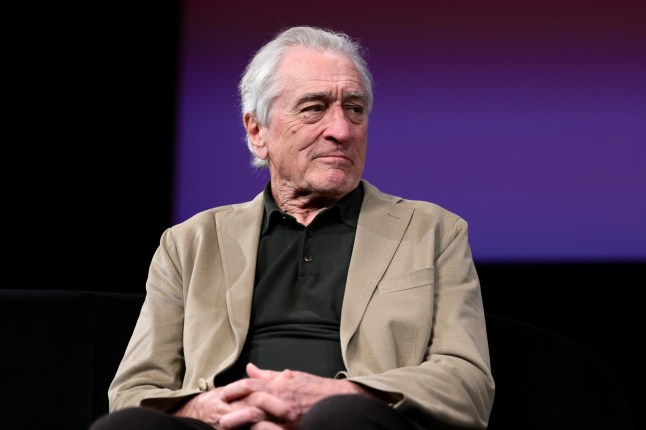
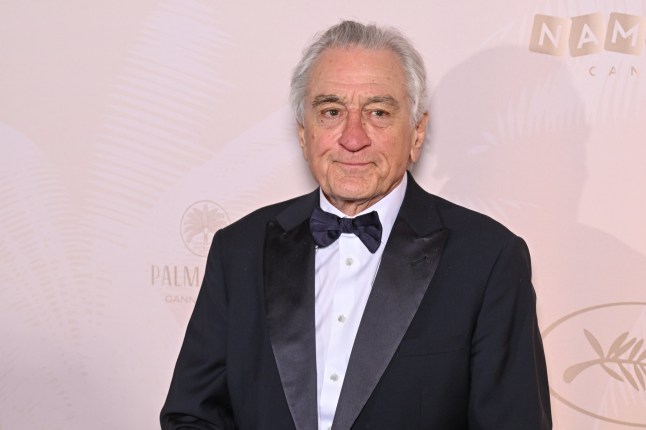
‘You can be a little more objective.’
Questioning if he ever looks at the films differently now, after having seen them through fresh eyes and with an audience, he clarified: ‘I’m not going to see them with an audience – I might.
‘I’ll try to look at them but not with an audience. I’m doing one Q&A before, and one after.’
Robert has always celebrated his career at Tribeca with screenings and Q&A sessions – and last year was honored with his very own ‘De Niro Con’ around Manhattan.
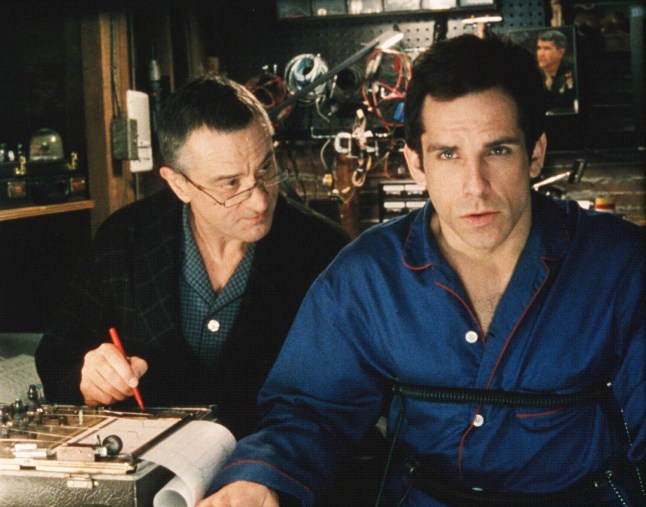
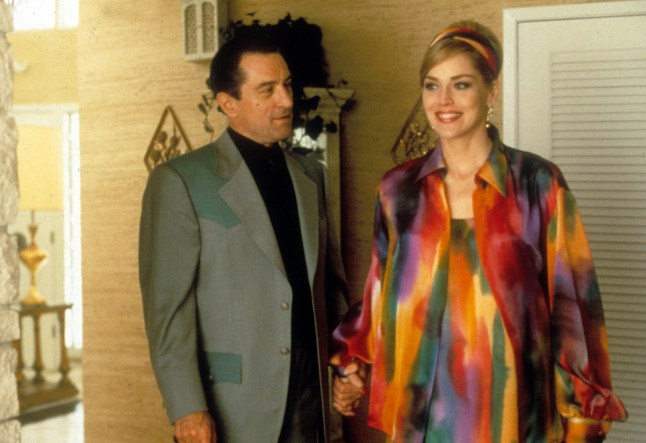
This year is no different as he is appearing at events to mark the 25-year anniversary of Meet the Parents, as well as a chat with Martin Scorsese on all things Casino for the iconic flick’s 30th birthday.
In Meet the Parents, he showed off his comedic talents when he invited us all into his ‘circle of trust’ as the stern father who was meeting his daughter’s boyfriend, Gaylord ‘Greg’ Focker (Ben Stiller), for the first time.
Unfortunately, Greg’s attempts to impress his partner’s parents didn’t quite go as planned, leading to lie detectors and a lost family cat.
Casino was a slightly different vibe but equally as legendary, with Robert playing mobster Sam ‘Ace’ Rothstein.
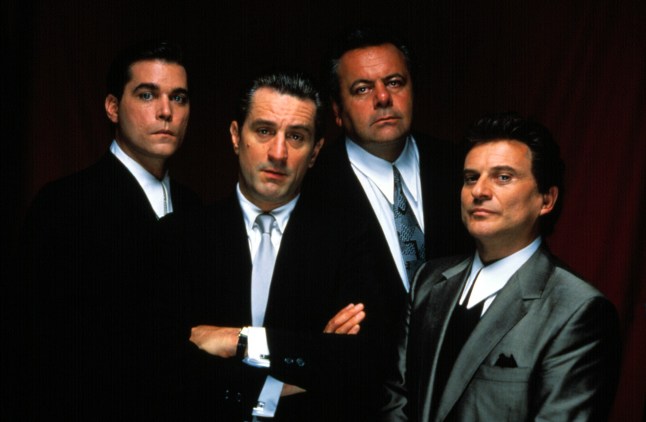
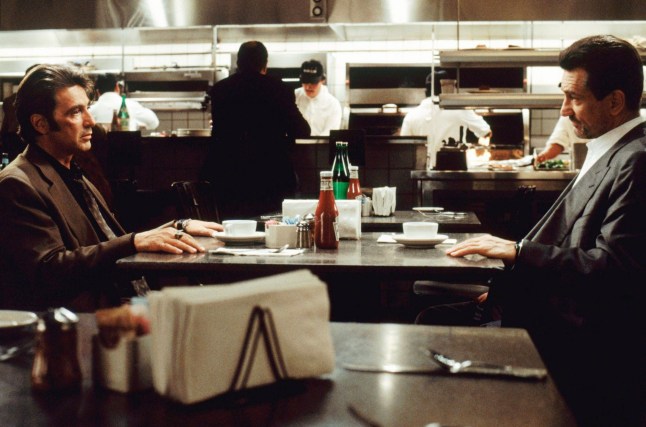
He is tasked with running a Las Vegas casino but takes action when his pal Nicky Santoro’s (Joe Pesci) criminal activities – and his own romance with con artist Ginger (Sharon Stone) – draw too much attention to their antics.
Aside from Casino, he has worked with director Martin a number of times, staring off their close relationship with Mean Streets in 1973, before reuniting on Taxi Driver three years later.
They went on to share a set in New York, New York, as well as Goodfellas, Cape Fear and Netflix’s The Irishman.
Robert has also showered with acclaim and accolades from projects with the filmmaker – he won the best actor trophy at the Oscars for his efforts in 1980’s Raging Bull, and a Golden Globe.
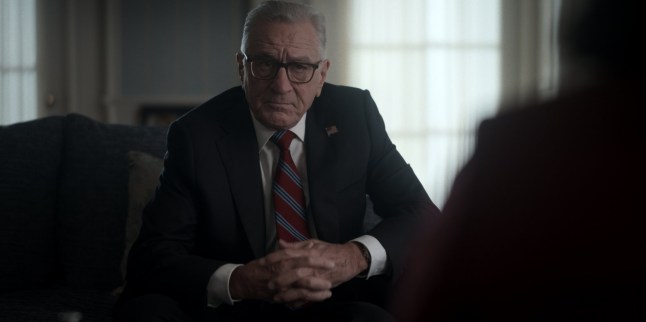
He landed a further two nominations for stints in Marty’s movies – including Cape Fear and Killers of the Flower Moon, while his first Oscar came from his scene-stealing turn in Francis Ford Coppola’s The Godfather Part II.
The Hollywood heavyweight has graced our screens for decades and is clearly showing no signs of slowing down, having made his TV debut in Netflix series Zero Day earlier this year.
He recently played a dual role as both Vito Genovese and Frank Costello in The Alto Knights, and is next set to pop up in The Whisper Man alongside Michelle Monaghan, Adam Scott and Michael Keaton.
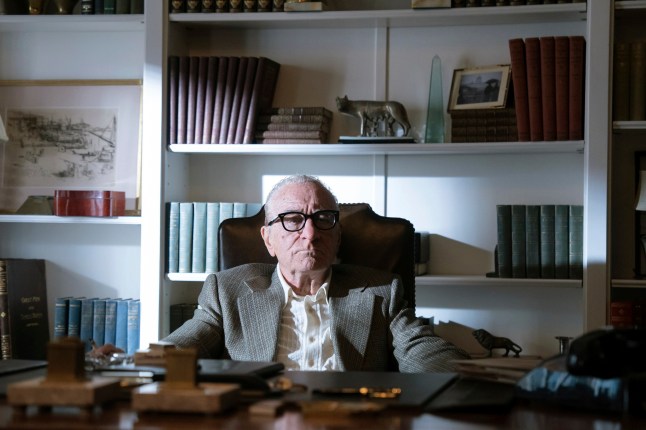
However, speaking to GQ he explained that there is still one thing that he would love to do in terms of his career.
‘I was always thinking I’d like to see all my movies,’ he told the outlet. ‘Go over them all and see [them] in the order I made them and just sort of see everything that I’ve done one last time in my life.
‘I don’t know if I’ll ever do it but I used to think, I’d like to do it.’
We need to make this happen.
Tribeca Film Festival runs until June 15.
Got a story?
If you’ve got a celebrity story, video or pictures get in touch with the Metro.co.uk entertainment team by emailing us celebtips@metro.co.uk, calling 020 3615 2145 or by visiting our Submit Stuff page – we’d love to hear from you.
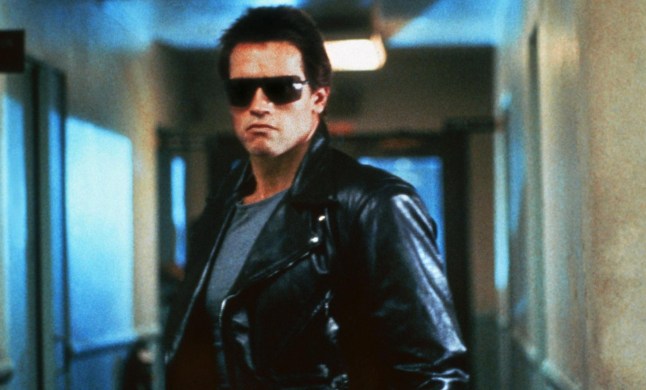
Arnold Schwarzenegger tried to rewrite one of the most famous lines in movie history
Arnold Schwarzenegger tried to change his famous line in the Terminator (Picture: Shutterstock) Arnold Schwarzenegger has dropped a huge bombshell about his stint in the Terminator, confessing that he didn’t like his most famous catchphrase. The 77-year-old starred as the creepy cyborg assassin in the […]
Film
Arnold Schwarzenegger has dropped a huge bombshell about his stint in the Terminator, confessing that he didn’t like his most famous catchphrase.
The 77-year-old starred as the creepy cyborg assassin in the hit 1984 flick, helmed by James Cameron, and later reprised his role in a string of the sequels.
The character is most known for threatening, ‘I’ll be back’, which was voted among the best movie quotes in history by the American Film Institute (AFI).
However, sitting down with son Patrick Schwarzenegger to reflect on their separate screen careers, he admitted that he tried to rewrite it before the director shut him down.
In a new Variety interview, he told the White Lotus star: ‘The old directors were fanatics about “Study your dialogue and hit the mark.”
‘Jim Cameron is like that. I would say, “I don’t like the line ‘I’ll be back.’” He says, “What do you mean you don’t like the line?” I said, “It’s just weird for a German to say, “I’ll be back.” Why not just say, “I will be back”?”
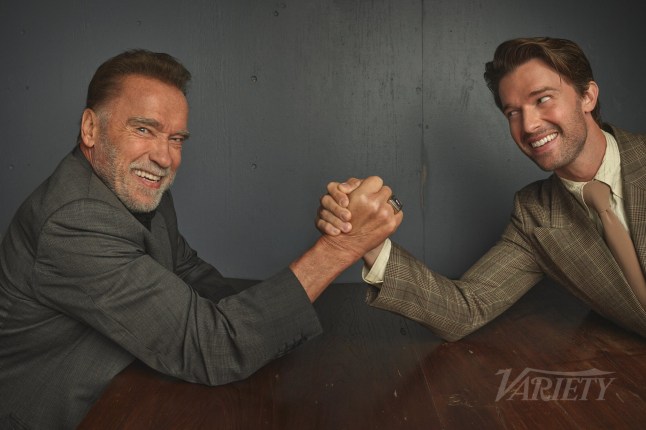
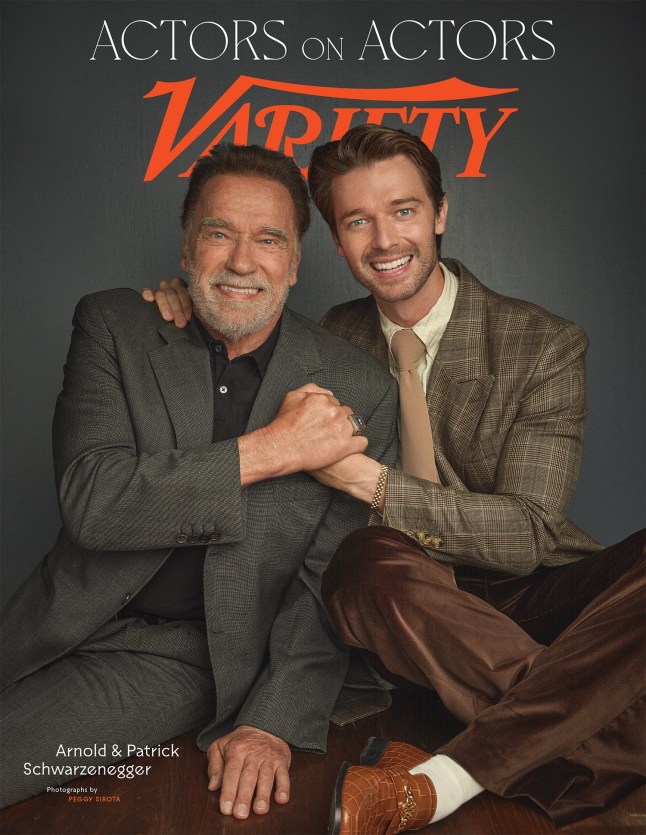
‘He says, “Oh, you’re trying to tell me how to be a better writer, because I’m not telling you to be a better actor.
‘Just say, “I’ll be back.” If you want me to do 10 takes because you feel insecure about it, we can do that. But don’t change my writing.”’
Thankfully, the line remained the same and has popped up countless times in Arnie’s career ever since, including in the other Terminator movies.
He also uttered the now-infamous words in 1988 comedy Twins, 1993’s the Last Action Hero as well as the Expendables 2 in 2012.
In the action blockbuster, the Hollywood favorite played a robot assassin from the future sent back in time to kill Sarah Connor (Linda Hamilton), a woman whose unborn son will one day save humanity from AI.
He went on to reprise his role in sequels Terminator 2: Judgement Day and Terminator 3: Rise of the Machines, before featuring in 2015’s Genisys and 2019’s Dark Fate.
Although the franchise has been hugely successful, the films could have looked very different as OJ Simpson was linked to the main role at one point.
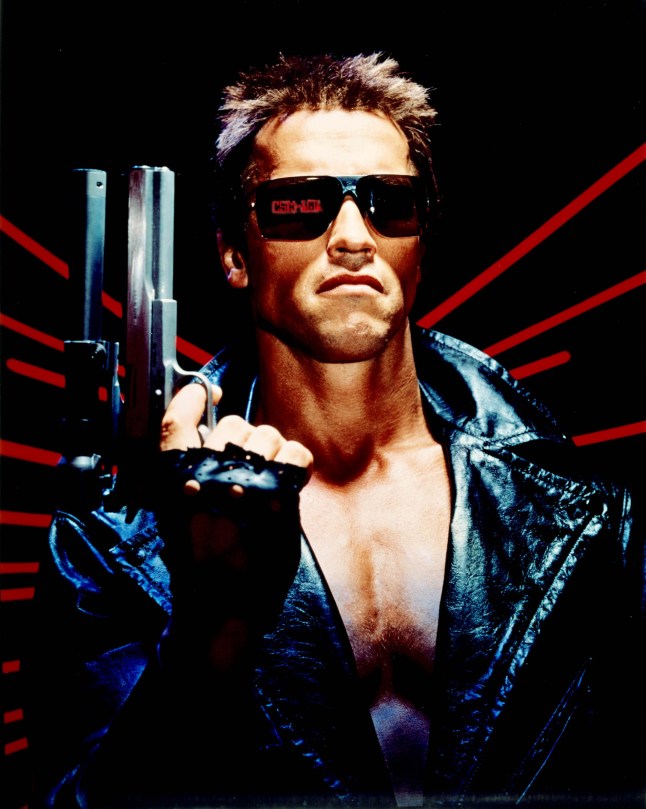
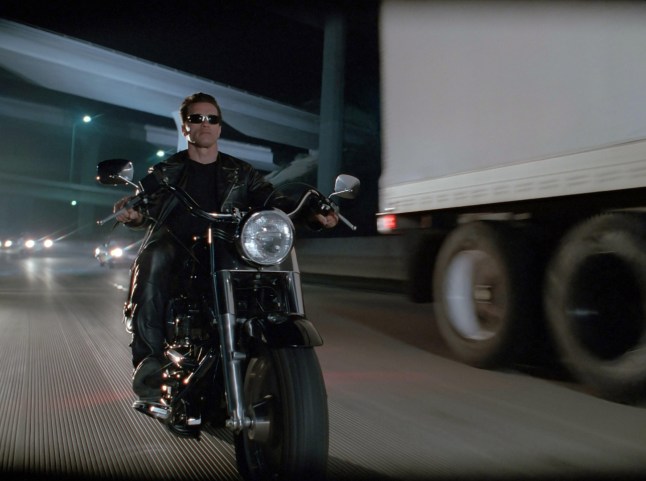
Arnie previously claimed that the NFL star – who was accused of killing his partner, Nicole Brown Simpson, in 1994 – to appear as the killer cyborg while he was considered for the role of rebel soldier Kyle Reese.
Lifting the lid on that version of the film, James confirmed: ‘Very early on, a highly placed person at one of the two studios that funded that film had a brilliant idea and called me up and said, “Are you sitting down? … OJ Simpson for the Terminator!”
‘I said, “I actually think that’s a bad idea.” It didn’t go anywhere.’
And the rest is history…
Got a story?
If you’ve got a celebrity story, video or pictures get in touch with the Metro.co.uk entertainment team by emailing us celebtips@metro.co.uk, calling 020 3615 2145 or by visiting our Submit Stuff page – we’d love to hear from you.
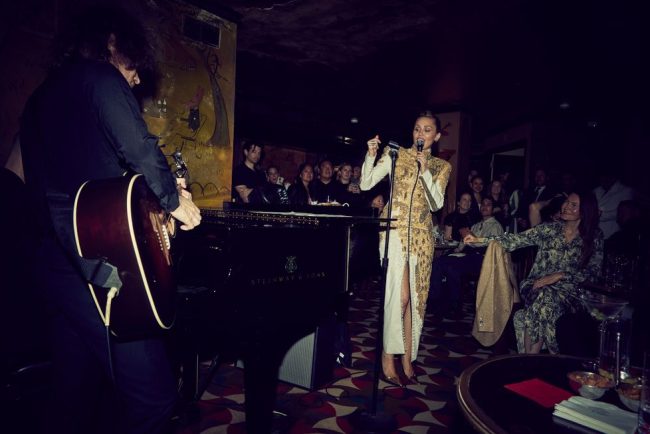
Inside Miley Cyrus' Surprise Performance in NYC
Call it the end of the world tour as we know it. Miley Cyrus, pop’s perennial shapeshifter, is opting out of the stadium spectacle. Instead, she’s slipping into something more intimate: secret performances at cultural haunts like the Chateau Marmont and the Carlyle Hotel, where […]
Music
Call it the end of the world tour as we know it. Miley Cyrus, pop’s perennial shapeshifter, is opting out of the stadium spectacle. Instead, she’s slipping into something more intimate: secret performances at cultural haunts like the Chateau Marmont and the Carlyle Hotel, where the audience is small, the vibe is cinematic and the energy is raw.
This isn’t just a soft launch of a new era — it’s a reinvention of modern touring that leans into intimacy and direct connection with an audience.
Last night, that ethos came to life at Bemelmans Bar inside New York City’s iconic Carlyle Hotel. The PAPER cover alum surprised an intimate crowd with a pop-up performance that felt lifted from a dream. Draped in a custom look from Thom Browne’s debut couture collection for Fall 2024, she delivered a trio of tracks: her Grammy-winning anthem “Flowers,” alongside two new standouts — “More to Lose” and “Easy Lover” — from her ninth studio album, Something Beautiful.



“Having every day the relationship between you and other humans being subject and observer isn’t healthy for me,” Cyrus explained in her 2023 Used to Be Young TikTok series. “It erases my humanity and my connection.” And you could sense it — a gentle unraveling of the old blueprint. Somewhere between Bangerz’s neon chaos and the introspection of Endless Summer Vacation, the pop machine began to feel… less vital. So she recalibrated. No world tour for Something Beautiful (at least for now) — just intimate pop-up shows in gilded hideaways where every note feels couture.
It’s more than self-care — it’s self-sovereignty. In a cultural moment where artists are reasserting control over their time, bodies and narratives, Cyrus’ refusal to grind for the algorithm or run the merch gauntlet hits differently. It’s a flex of creative autonomy, an act of preservation framed as performance art.
And she’s not alone. Across music’s upper echelon, artists are staging quiet rebellions. Whether it’s Lorde ghosting the main pop stage or the All-American Rejects house party tour or Frank Ocean turning Coachella into a conceptual mirage, there’s a new prestige in restraint. Less spectacle, more substance. Less for the crowd, more for the soul.
Miley’s return to the torch-song intimacy of a hotel piano bar is less nostalgia and more subversion. It’s a reminder that connection doesn’t scale — and maybe, it was never meant to.



Photos courtesy of Miley Cyrus
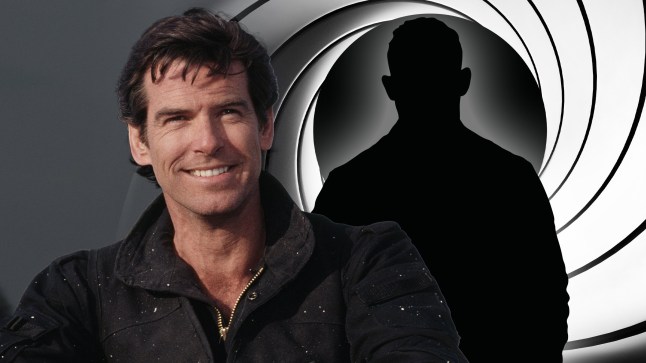
James Bond star Pierce Brosnan’s ‘wonderful’ choice for new 007 actor
Former James Bond star Pierce Brosnan has thrown his weight behind an actor for the role (Picture: Getty/Rex) Pierce Brosnan has given an indication as to who his pick for the next James Bond is, calling the actor ‘wonderful’. The 72-year-old star, who held 007’s […]
Film
Pierce Brosnan has given an indication as to who his pick for the next James Bond is, calling the actor ‘wonderful’.
The 72-year-old star, who held 007’s licence to kill from 1995’s GoldenEye to 2002’s Die Another Day – making four films in total as the suave spy – was initially reluctant to say.
‘I have no picks. I shall leave it open to the powers that be,’ he initially began, adding: ‘It’s a very exciting moment in the history of James Bond. Now that Barbara [Broccoli] and Michael [G Wilson] have relinquished the reins of it.’
However, when The Hollywood Reporter asked how his MobLand co-star Tom Hardy could do in the role, Brosnan laughingly changed his tune.
‘Oh! Tom would be wonderful,’ he agreed.
‘There’s so many great actors out there who could portray this character. I have no idea who, I have no idea. I wish whoever it is great success.’
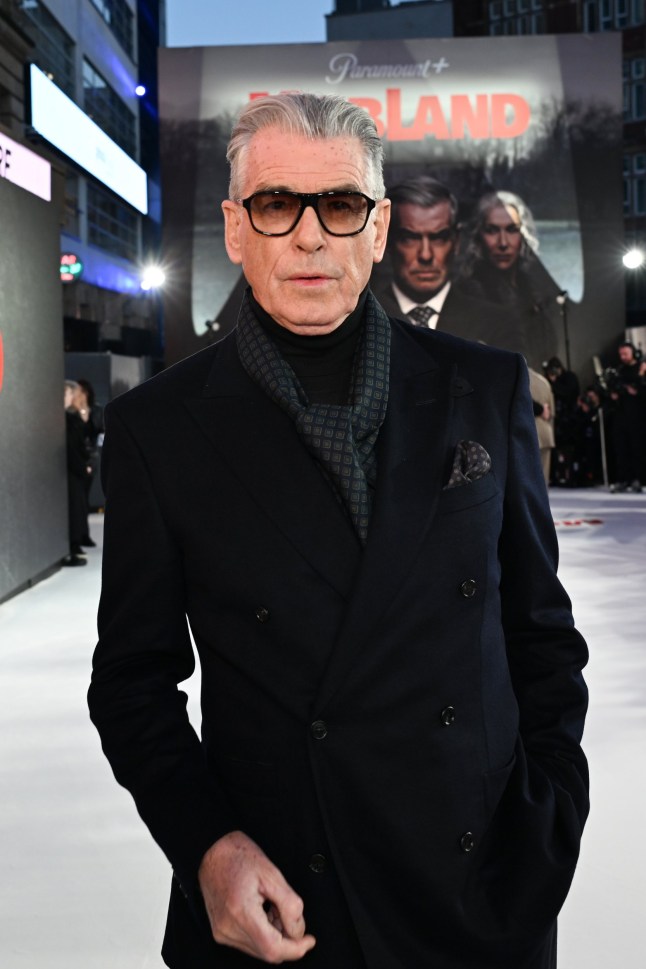
The Bond franchise is now under the full creative control of Amazon MGM Studios, after the Broccoli family, its long-term producers through parent studio Eon, ceded that power earlier this year.
Amazon had previously acquired the rights to the franchise through Eon, founded in 1961, when it bought MGM in 2022 for $8.45billion (£6.24bn).
But Broccoli and Wilson retained final say on key production issues such as casting until February, when it’s thought Amazon paid over $1billion (£739.3million) to buy those rights from them.
Venom star Hardy, 47, has long been a favourite candidate for the coveted role of Bond in fans’ eyes.
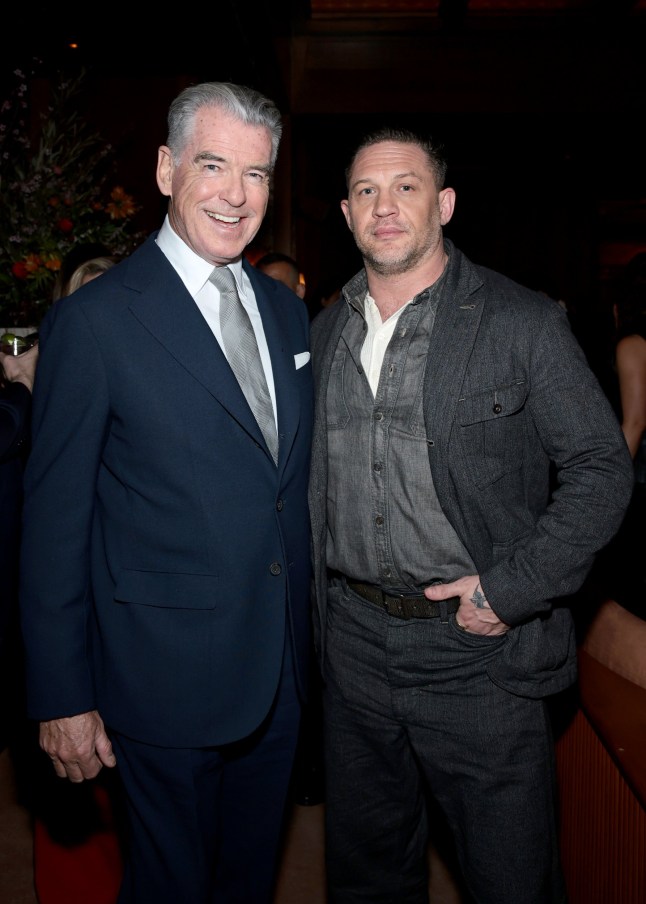
As well as routinely featuring in betting companies’ odds, he sparked a wave of support once more last summer, when Venom: The Last Dance’s trailer showed him suited up in black tie, adjusting his cuff as he walked – a very Craig-era Bond thing to do.
‘Tom Hardy in a tux is just teasing us for his supposed James Bond gig… man what an actor,’ tweeted fan Sandra on X at the time, while Ally Keyoni was more insistent in her choice, writing: ‘CAST TOM HARDY AS JAMES BOND RN.’
Brosnan has been cautious of saying too much in this era of change for his beloved character, but he did previously suggest that he could be interested in returning to the role himself as a ‘romantic notion’.
However, he added to GQ that he felt it ‘was best left to another man, really. Fresh blood’.
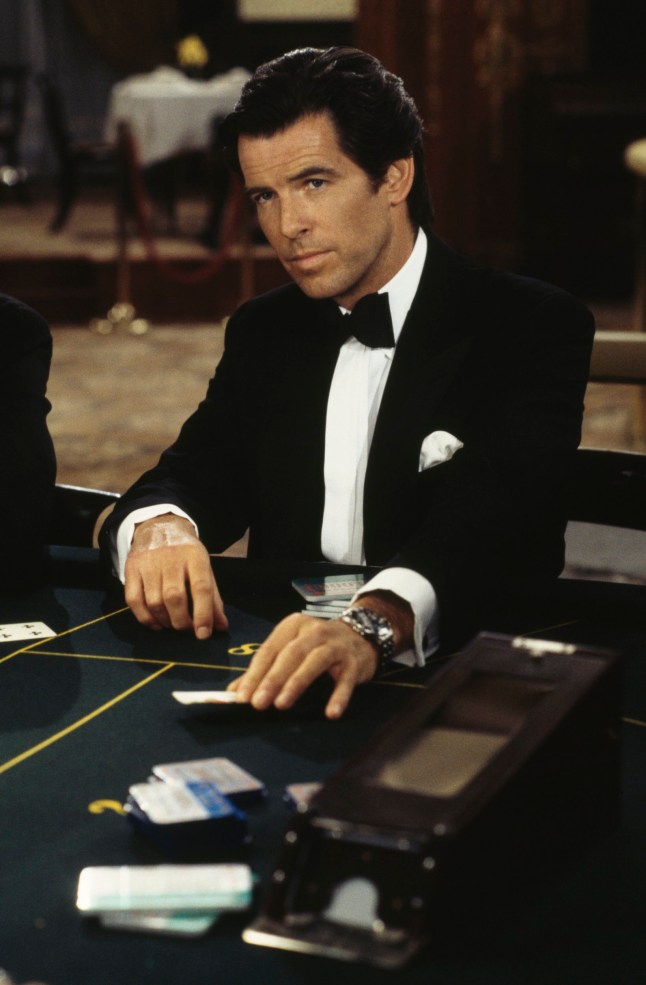
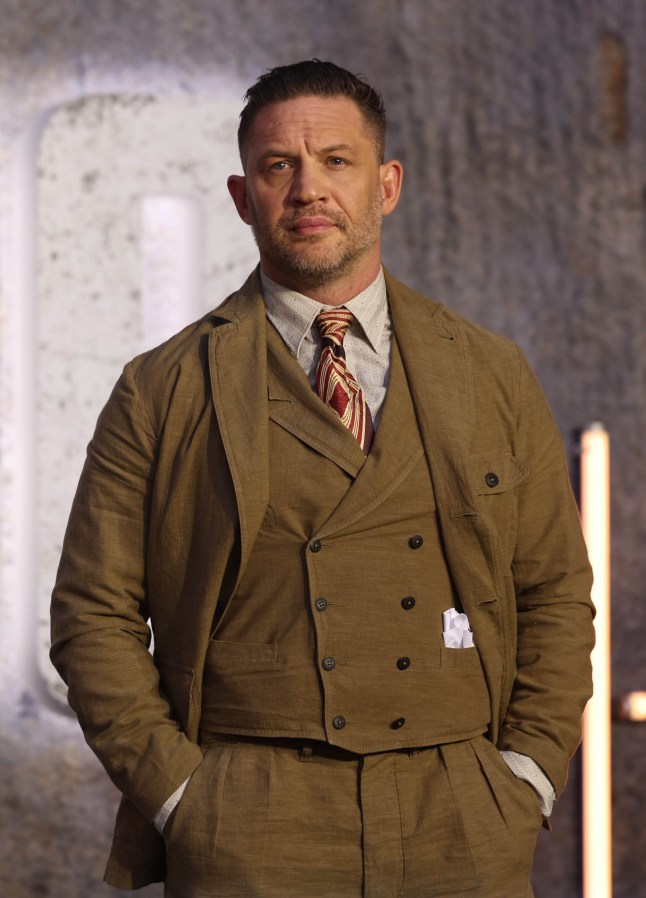
In MobLand, Hardy plays Harry De Souza, a fixer for Harrigan crime family, led by Conrad (Brosnan) and Maeve (Dame Helen Mirren).
The series is co-directed and executive produced by Guy Ritchie.
Despite being Irish himself, Brosnan has faced criticism over his accent in the show, which has been branded ‘offensive’ by some.
Having his say on the backlash, the Drogheda-native previously told Radio Times: ‘My own accent is very soft, Conrad’s accent is a million miles away from me.’
Shedding light on his inspiration for the accent, Pierce explained that it was taken from someone suggested by his dialect coach.
‘I told him that I needed a Kerry accent, so he gave me the name of a man and I googled the guy and that was it,’ he added.
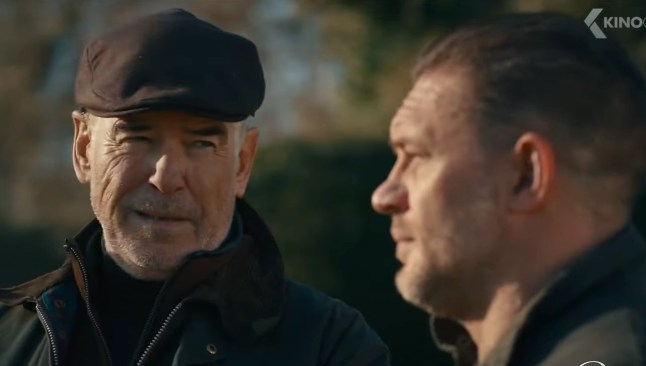
‘It was a Kerry accent and so, I just gave it full tilt.’
Brosnan will next be seen in Netflix’s eagerly anticipated adaptation of Richard Osman’s novel The Thursday Murder Club, again opposite Dame Helen, as well as Sir Ben Kingsley and Celia Imrie.
The quartet star as retirees who spend their free time solving cold cases for the pure fun of it, but things take a murderous turn when they are thrown into a real crime on their doorstep.
Got a story?
If you’ve got a celebrity story, video or pictures get in touch with the Metro.co.uk entertainment team by emailing us celebtips@metro.co.uk, calling 020 3615 2145 or by visiting our Submit Stuff page – we’d love to hear from you.
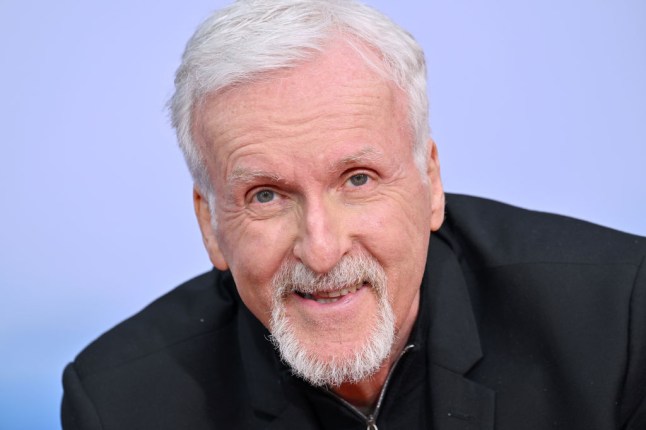
James Cameron taking a break from Avatar as he tackles ‘new challenge’
James Cameron is pausing his focus on Avatar for now (Picture: Axelle/Bauer-Griffin/FilmMagic) Director James Cameron is putting the behemoth that is the Avatar franchise to one side as he takes on a new job. Avatar: Fire and Ash, the third instalment, is ‘winding down’ production […]
Film
Director James Cameron is putting the behemoth that is the Avatar franchise to one side as he takes on a new job.
Avatar: Fire and Ash, the third instalment, is ‘winding down’ production with a trailer expected soon as the film is due out later this year.
Instead of starting on the fourth film – due out in 2029 – Cameron has revealed he’s going to be adapting a new novel called The Devils.
In a statement on social media, the 70-year-old filmmaker has confirmed his production company Lightstorm Entertainment acquired the rights to author Joe Abercrombie’s book.
Cameron and Abercrombie will be co-writing the script together for the fantasy story which was released just last month and became an instant bestseller.
‘I’ve loved Joe’s writing for years, cherishing each new read, throughout the epic cycle of the First Law books, especially Best Served Cold (LOVE IT!), and the ‘Age of Madness’ trilogy,’ the Titanic legend said.
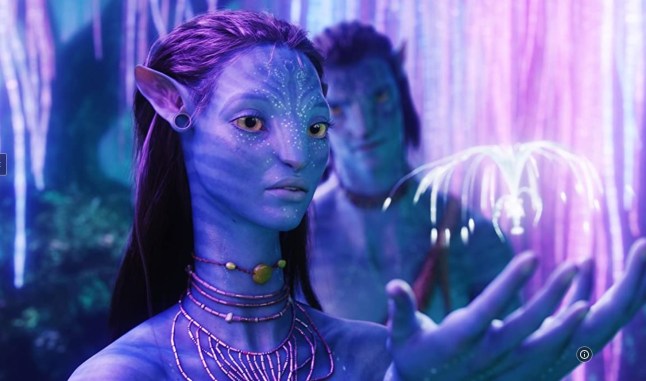
He continued: ‘But the freshness of the world and the characters in ‘The Devils’ finally got me off my butt to buy one of his books and partner with him to bring it to the screen.
‘I can’t wait to dig into this as I wind down on Avatar: Fire and Ash. It will be a joyful new challenge for me to bring these indelible characters to life.’
The Devils focuses on a special force of monsters tasked to save Europe from flesh-eating elves – with a plot like that, we’re not surprised the esteemed director rushed to get involved.
Praising the filmmaker, Abercrombie said: ‘I can’t think of anyone better to bring this weird and wonderful monster of a book to the screen.’
With only four years to go before the as-yet-untitled Avatar 4, it’s unclear if Cameron is planning to be hands-on for The Devils’ entire production.
If he wasn’t busy enough, he’s also directing another novel adaptation; The Last Train From Hiroshima by Charles Pellegrino.
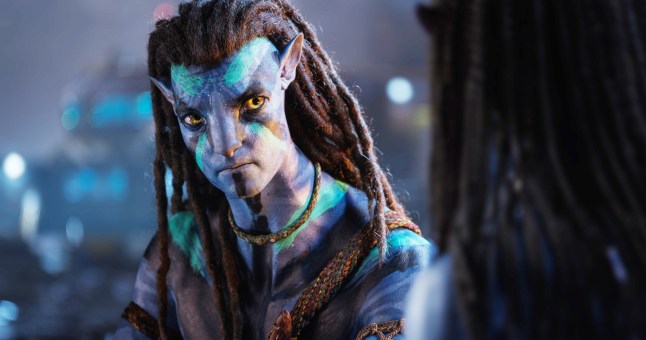
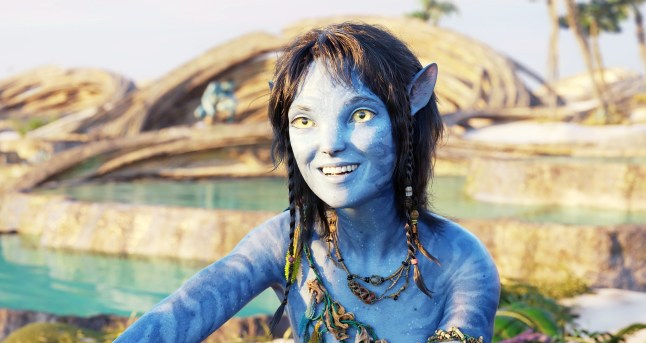
There’s also the illusive adaptation of Taylor Stevens’ novel The Informationist that Lightstorm Entertainment purchased the rights to in 2012.
Dedicated film fans will remember that at the time Cameron said he’d direct it once Avatar was completed – we won’t hold our breath on that one.
Avatar: Fire and Ash is slated for a December 2025 release with the sequels following in 2029 and 2031 respectively.
The previous instalment, Way of the Water, clocked in at three hours and 12 minutes but Cameron is promising that the follow-up will be even longer.
He told Empire magazine: ‘In a nutshell, we had too many great ideas packed into act one of movie 2. The [film] was moving like a bullet train, and we weren’t drilling down enough on character.
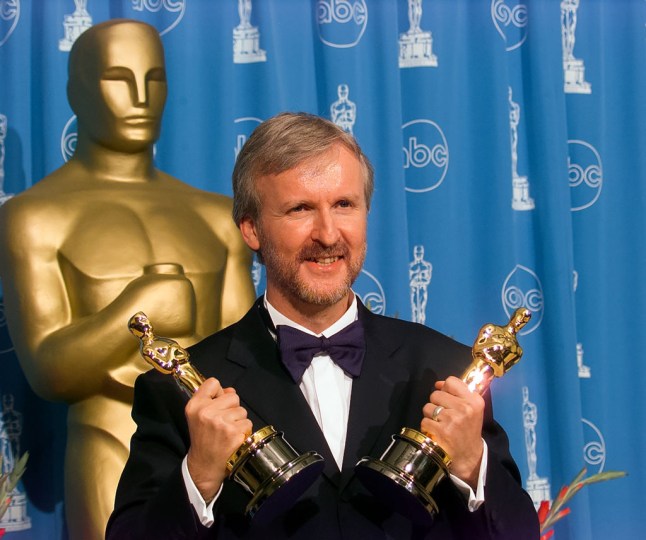
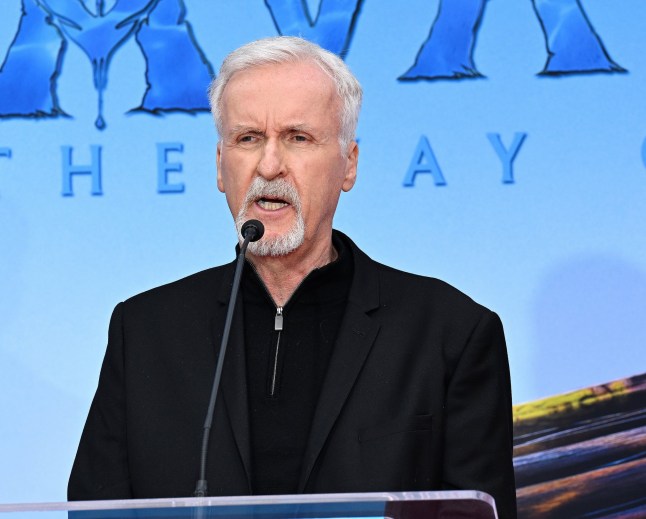
‘So I said, “Guys, we’ve got to split it.” Movie 3 will actually be a little bit longer than movie 2.’
Script co-writer Amanda Silver seconded this feeling saying ‘the characters needed to breathe.’
She said: ‘These movies are a lot more than just propulsive plot and gorgeous spectacle. I mean, these are real characters.’
Cameron is feeling ‘pretty good’ about this next Avatar, having allowed a handful of people to screen the film already.
He previously told Stuff: ‘I’ve shown it to a few selected people and the feedback has been … it’s definitely the most emotional and maybe the best of the three so far.
‘We’ll find out, you know, but I feel pretty good about it.’
Got a story?
If you’ve got a celebrity story, video or pictures get in touch with the Metro.co.uk entertainment team by emailing us celebtips@metro.co.uk, calling 020 3615 2145 or by visiting our Submit Stuff page – we’d love to hear from you.
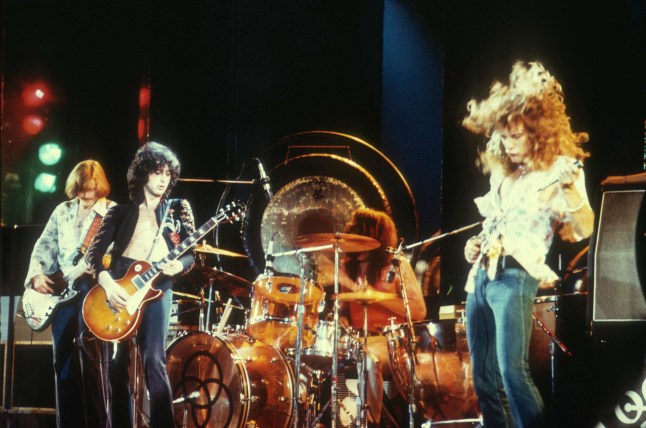
Netflix set to drop major Led Zeppelin documentary that’s missing one key part
Becoming Led Zeppelin offers a sanitised look at the band (Picture: MediaPunch/REX/Shutterstock) If you’re a Led Zeppelin superfan who’s already watched all the available online footage of their early days, you’re probably going to love Becoming Led Zeppelin. If you want to listen to hits […]
Film
If you’re a Led Zeppelin superfan who’s already watched all the available online footage of their early days, you’re probably going to love Becoming Led Zeppelin.
If you want to listen to hits from 1968 to 1970 for two hours and 17 minutes, you’ll also have a great time watching the documentary, which is set to drop on Netflix on Saturday, June 7.
Hell, if you just want to marvel at the sheer volume and movement of young Robert Plant’s golden curls, there’s plenty in the film for you.
But if you want to hear the true story of a band that was as controversial as it was popular, you’ve come to the wrong place.
Full of never-before-seen footage of the band’s first 18 months, interviews with John Paul Jones, Jimmy Page, Robert Plant, and new audio from the late John Bonham, the first authorised documentary about the best hard rock band to ever do it assumes a lot about what its audience already knows.
Get personalised updates on all things Netflix
Wake up to find news on your TV shows in your inbox every morning with Metro’s TV Newsletter.
Sign up to our newsletter and then select your show in the link we’ll send you so we can get TV news tailored to you.
Rarely bothering to even put names on the screen during interviews, the documentary feels so tightly controlled that often, what’s not being said feels louder than what is. For stopping its narrative in 1970, before the band even reached their Stairway to Heaven era, the documentary manages to pack very little into a long run time.
To view this video please enable JavaScript, and consider upgrading to a web
browser that
supports HTML5
video
Up Next
window.addEventListener(‘metroVideo:relatedVideosCarouselLoaded’, function(data) {
if (typeof(data.detail) === ‘undefined’ || typeof(data.detail.carousel) === ‘undefined’ || typeof(data.detail.carousel.el_) === ‘undefined’) {
return;
}
var player = data.detail.carousel.el_;
var container = player.closest(‘.metro-video-player’);
var placeholder = container.querySelector(‘.metro-video-player__up-next-placeholder’);
container.removeChild(placeholder);
container.classList.add(‘metro-video-player–related-videos-loaded’);
});
There is almost no mention of the troubling culture that famous rock journalist Mick Farren described as ‘running in semen and beer and unpleasantness,’ noting that he witnessed members of the band ‘getting their d—- sucked by 13-year-olds under the table.’ When there are references to the band’s notorious rock n roll lifestyle, they come off as footnotes.
Of course, no one is asking the band to treat the documentary as a confessional in which to unpack all their dirtiest secrets and inter-band feuds. Still, the absolute refusal to engage with anything that could possibly reflect poorly on their legacy makes the film colorless and impersonal.
But one can’t really blame the director, Bernard MacMahon, for this sanitisation of rock’s infamous bad boys. Page – who is rightly depicted in the film as the beating heart of the band, handling much of their early business transactions, production, songwriting, and overall brand – is famously protective of Zepp’s image.
It’s a miracle that an authorised documentary about the band was made at all, given that every attempt to make one over the years has been thoroughly thwarted.
Page told Metro in a recent interview that countless people have approached him about a film: ‘Yeah…Warner Brothers, who were trying to float this idea with an absolute idiot. We had a meeting, and he was saying, “Oh, well, it starts off at the Continental Hyatt Hotel. And it’s in the lobby and there’s lots of groupies and then you come down in the lift…” Excuse me? What group is it you think are doing this? You’re not talking to Led Zeppelin? Is it Mötley Crüe? Or Quiet Riot?’
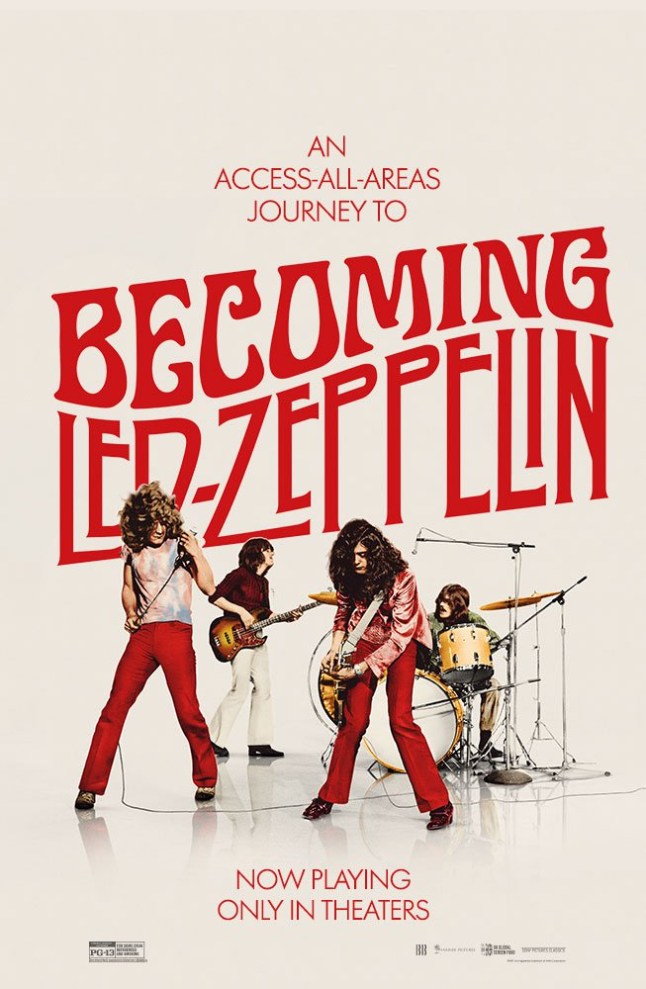
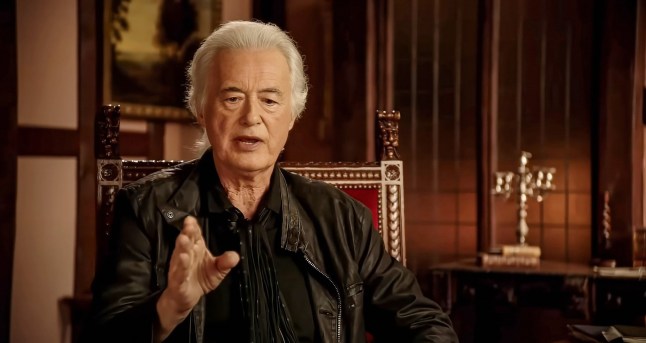
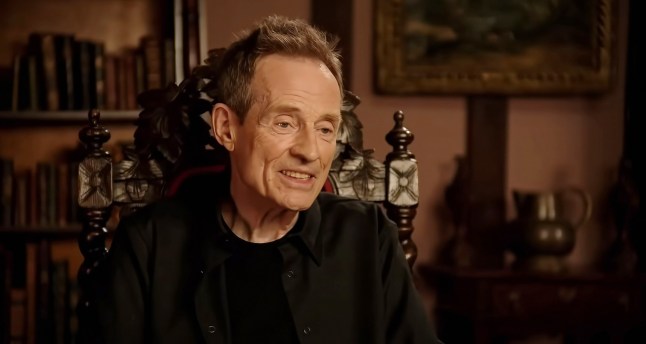
(Picture: Sony Pictures/Everett/REX/Shutterstock)
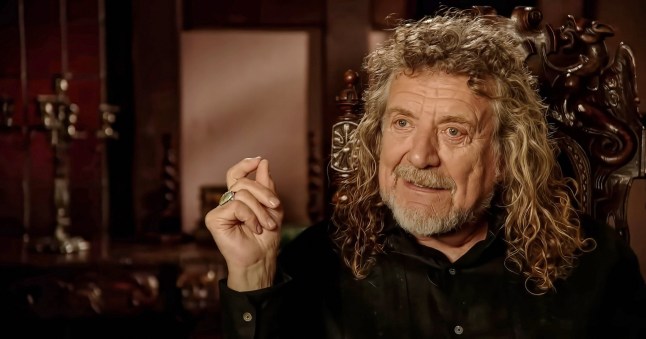
This kind of derision is common for the famous perfectionist, who describes the members of Led Zeppelin finding each other when they did with an air of mythos verging on biblical throughout the film.
His pride is warranted and even admirable, but it’s evident throughout that Page remains the ultimate authority over all things related to the band, and his desire to be the arbiter of how they’re remembered leaves very little room for anything but insight into specific guitar riffs and concert footage.
If you didn’t know better, you might think the guys of Led Zeppelin were a group of adoring husbands who pined for their wives in tidy hotel rooms while on tour during the summer of love.
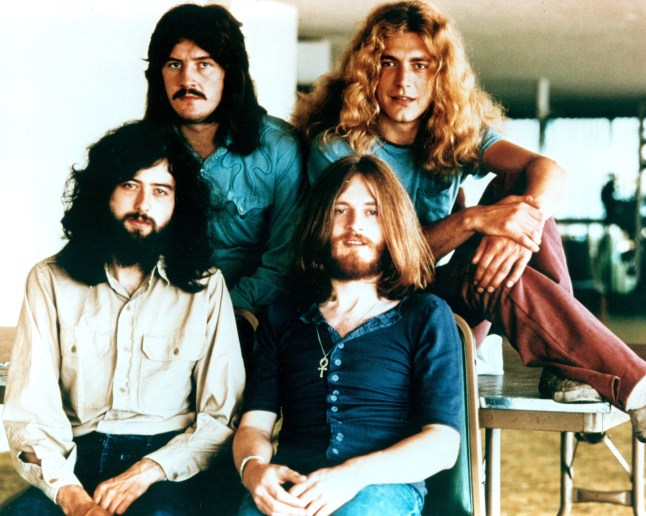
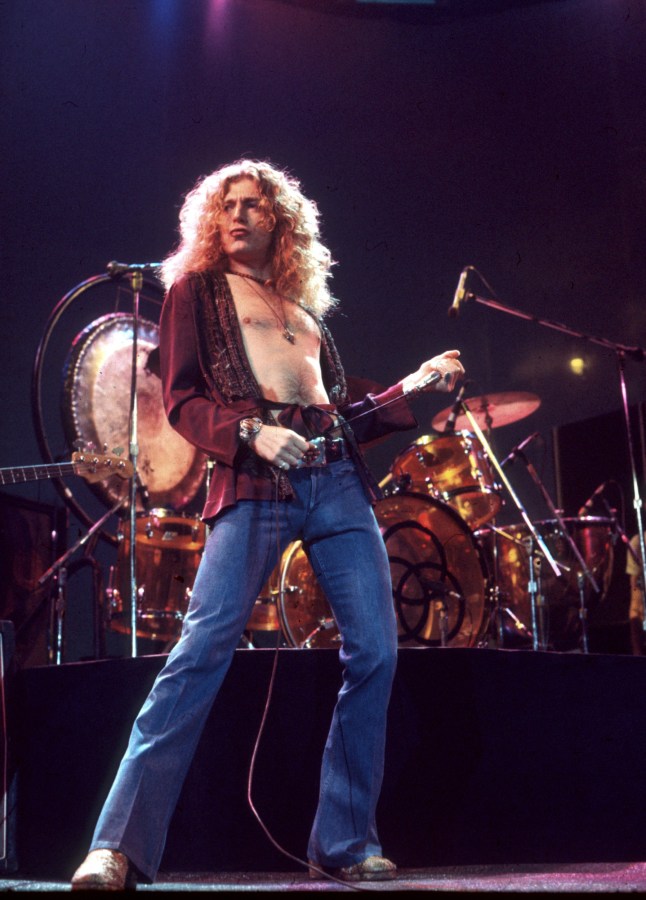
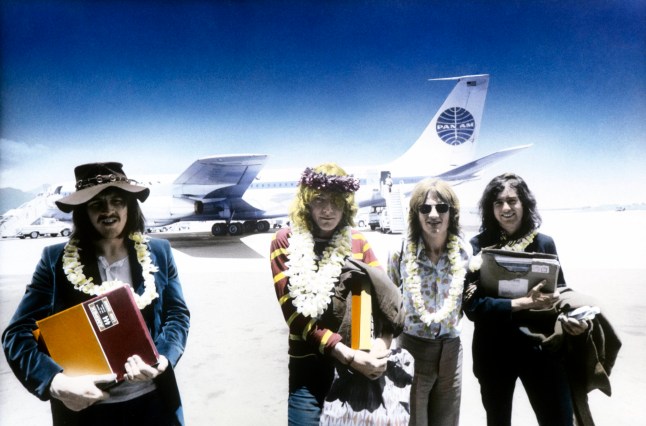
The doc is at its best during the moments of vulnerability that slip through the cracks of the carefully plastered facade. Its a treat to watch complex emotions play across the musician’s faces as they listen to Bonham’s voice in a rare uncovered audio interview from ’71.
John Paul Jones, in particular, seems genuinely connected to the memory of his lost friend, offering quips like ‘I was in love with that man’s right foot.’
But one doesn’t leave the theatre feeling like they know the late drummer – who died in 1980 of pulmonary aspiration after drinking himself comatose – any better.
Of course, seeing an early performance of a Whole Lotta Love in IMAX with surround sound is a chill-inducing, almost religious experience that just about makes up for the stubbornly lifeless aspects of the film.
The life and energy ripping from every pore on Robert Plant’s body in the archival performance footage is worth the price of admission, even if he comes across as a marionette controlled by his lead guitarist in the interview portions.
Ultimately, this film is about the music, which would be fine if the music wasn’t a product of the culture the doc completely ignores.
A version of this article was first published on February 20, 2025.
Got a story?
If you’ve got a celebrity story, video or pictures get in touch with the Metro.co.uk entertainment team by emailing us celebtips@metro.co.uk, calling 020 3615 2145 or by visiting our Submit Stuff page – we’d love to hear from you.

Tennis Says Goodbye
Patrick Riley and Alaina Moore are closing a chapter. As the husband/wife duo who perform under the moniker Tennis, they’ve made a name for themselves by shelling out retro, purified lo-fi indie. It’s been their main focus since releasing Cape Dory back in 2011 — […]
Music
Patrick Riley and Alaina Moore are closing a chapter. As the husband/wife duo who perform under the moniker Tennis, they’ve made a name for themselves by shelling out retro, purified lo-fi indie. It’s been their main focus since releasing Cape Dory back in 2011 — but all things must come to an end. Following the release of April’s Face Down In The Garden, the pair have decided to walk away from the project after 15 years.
Now, the band are making the rounds on a farewell tour. PAPER caught up with them at one of the stops, Salt Lake City’s Kilby Block Party. Watching them from the audience during their set, the crowd happily staring up at them, it’s hard to imagine that it’ll all be over soon. Still, they find the idea of closing this chapter and walking into a new one bitter but sweet. “We’re just trying to stay in the moment and be connected and really drink in the fact that this is our last tour,” Moore tells us. Riley agrees, adding that they now feel like their discography as Tennis is complete. “Being able to play a couple of the songs we wrote for Face Down in the Garden… songs that I felt our catalogue didn’t have. Now we have them,” he says.
Below the band send a message to their fans, talk about their final album Face Down in the Garden and discuss which songs they feel best encapsulate this final chapter of Tennis.

How are you feeling knowing this is the last album and tour you’ll be sharing as Tennis?
Alaina Moore: It’s feeling extremely bittersweet knowing that this is the last album we released and the last tour we’ll do in support of the record. There is a sense of relief since we’ve been working towards this moment for a long time. A moment of completion and finality. I feel like we’ve viewed Tennis as a project that had a specific purpose and we feel like we’ve achieved that and that feels incredible. We also feel really excited about the next thing. We’re just trying to stay in the moment and be connected and really drink in the fact that this is our last tour.
Patrick Riley: Also being able to play a couple of the songs we wrote for Face Down in the Garden … songs that I felt like our catalogue didn’t have. Now we have them. So we’re able to put our dream set list together.
Alaina: Yeah. It feels great.
What song do you feel like is the thesis statement of the album for you?
Patrick: Personally, for me, it’s “Weight of Desire.” I feel like that’s a song that we fit a lot of different ideas into and the arrangement is, at least for us, very interesting and exciting.
Alaina: I love that you say that. I feel like for me, the thesis statement of the album is “12 Blown Tires.” But I agree with you … “Weight of Desire” is another tentpole song of the record.
Patrick: Yeah, “12 Blown Tires” though is more of a rare, retrospective song. Alaina is telling a story of the last 15 years of our band and all the different things we’ve had to process. It’s an existential take on being a band and what it means to you.

What’s been the moment or experience that has stood out since you’ve decided this is the final Tennis album?
Alaina: The most bittersweet moment so far on tour has been actually crying with fans outside of the venue.
Patrick: I know, I cried too. I didn’t think I was going to. But it is weird to even acknowledge that our music has meant so much to people, which it clearly has.
Alaina: I met some people who met their spouse at our show. I met some people who met their best friend at our show and we were just crying about it because that’s so special. And I’m so grateful that our music got to be the soundtrack to someone’s life.
What message do you want to share with your fans?
Patrick: I’d say we’re out here to have a lot of fun because it is our last tour. And yeah, we want to play a lot of the songs that people want to hear.
Alaina: My message to fans would be, if all we ever did was have our connection with them and play music for them, we would never quit. Unfortunately, that’s only about five percent of what being in a band entails. So they are the best part of this and we would never stop it if that’s all it was. If that was the job, we would do this forever.

Photography: Lloyd Mongo
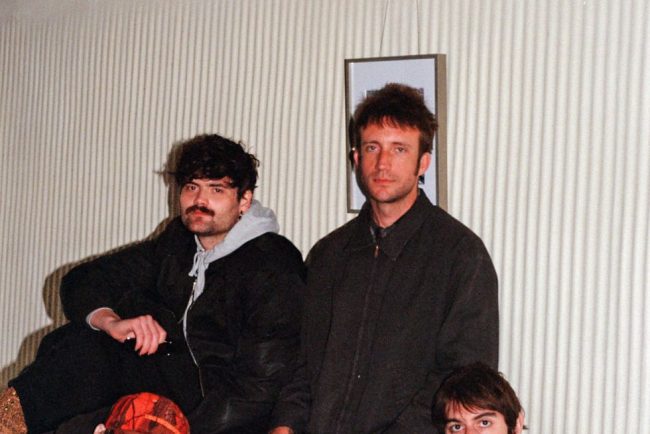
Model/Actriz Steps Up
It was a classic Brooklyn evening. Greenpoint was misty. The streets were lined with black-clad concert goers. And Model/Actriz was lurking. I had previously seen the New York-based purveyors of a delirious, hard-edged rock music at Pitchfork Festival in Chicago, under a harsh and open […]
Music
It was a classic Brooklyn evening. Greenpoint was misty. The streets were lined with black-clad concert goers. And Model/Actriz was lurking.
I had previously seen the New York-based purveyors of a delirious, hard-edged rock music at Pitchfork Festival in Chicago, under a harsh and open summer sky. This time, though, the quartet was performing in the intimate and murky club Good Room — a space which normally serves up blaring house and techno.
It was fitting, though, that Model/Actriz was playing there, given that their guiding light is dance music. Instead of WAVs and CDJs, though, they’re achieving the genre’s euphoria with bass, guitar, drums and singer Cole Haden’s theatrical vocal acrobatics. “We’re aspiring to make club music, but over the course of an hour, rather than over the course of a whole night,” Haden tells PAPER the day after Model/Actriz’s triumphant gig. “Can we get the room to the same place that would happen if someone was dancing from 10 to 2 AM? We have to find a way to shorten the amount of time it takes to reach that kind of euphoria or a trance state.”
The quartet catches up with PAPER at Brooklyn queer bar Singers. Haden, bassist Aaron Shapiro, guitarist Jack Wetmore and drummer Ruben Radlauer are reflecting on their whirlwind two years since they released their debut album, Dogsbody. It’s almost eerily quiet in the open backyard given the space’s usual hubbub, especially so soon after being thwacked and sacked in a whirlpool of Model/Actriz fans, all thrashing in celebration of the band’s new album, Pirouettes, released in early May.
Haden spent the bulk of the show roving through the crowd like a huntress, often finding himself in all sorts of surprising architectural nooks, crannies and platforms. “During sound check I’m like a cat checking out the space,” Haden hums. “When there is a barricade, I stand on it. When there is a platform, I stand on it. If it’s weight-bearing, I’ll be on it.” The result is a show that is propulsive and surprising.
The potential intensity of that experience has made their live shows must-see occasions for both die-hard fans and the curious alike. But the sweaty release of their concerts should not be mistaken for grave “hardcore” seriousness. “If I actually get to witness something Cole is doing, it’s so fucking hilarious,” says Shapiro. “Usually, I’ll look at Jack and Ruben and we’re all just laughing.”
“I’m laughing, too,” adds Haden. “What defines a successful show to me is one where it feels like by the end of the show there’s a shared sense of humor.”
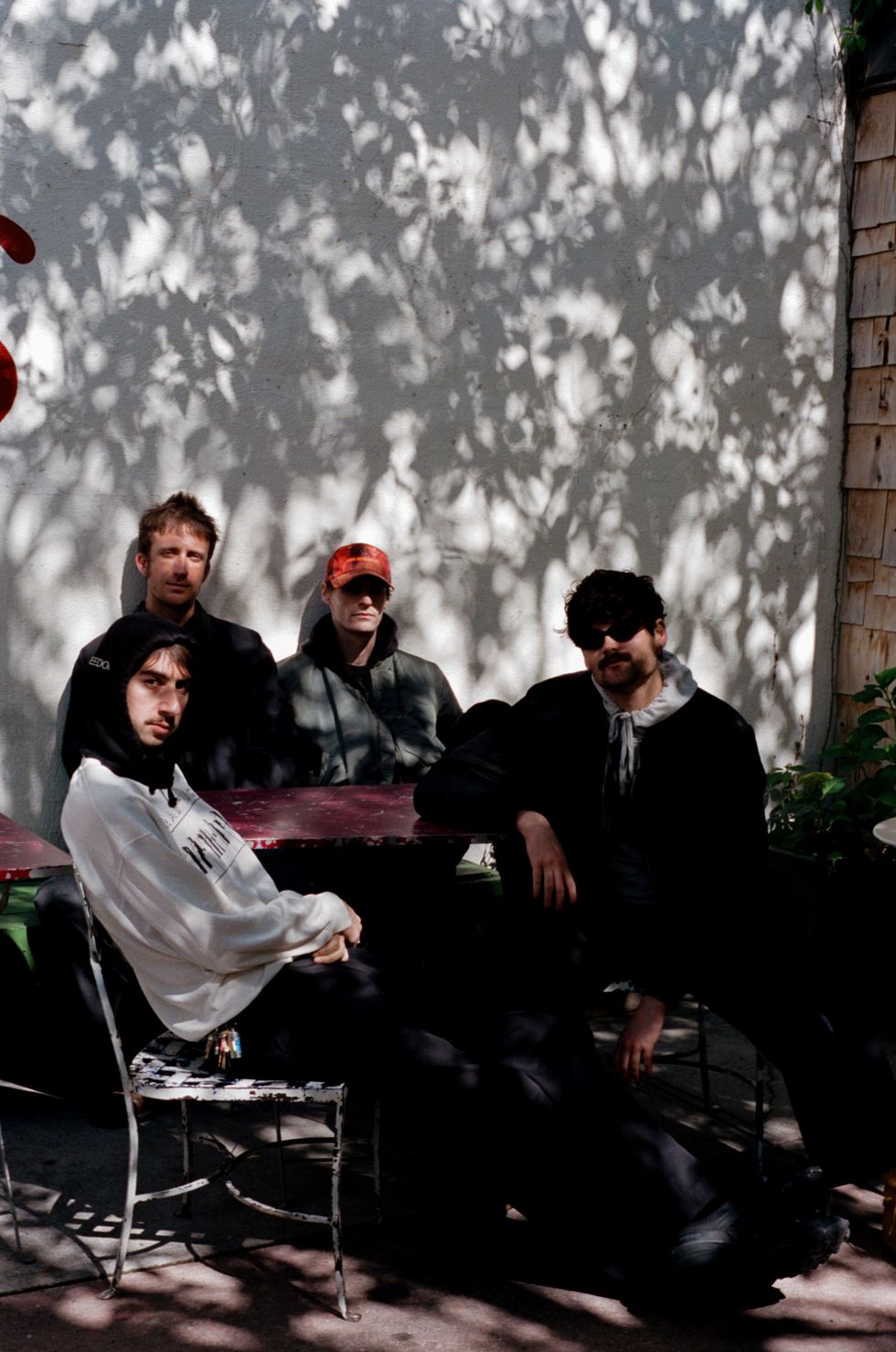
Throughout a Model/Actriz show, Haden takes on the effect of a wryly sarcastic dom, commanding the crowd before twirling in literal Cinderella garb. That mix of intensity and laughs can be felt on record too, where Haden mines themes of queer adolescence, shame and embodiment alongside the highs and lows of being the stage-lit “Diva.”
A much more personal record, Pirouettes is littered with stories told plainly, like asking for a Cinderella-themed party in his youth on “Cinderella” or desiring a quietly “embodied” man who’s standing on the Dekalb Ave L subway station on “Departures.”
“I talk [on the album] about dancing in my room alone, and now I’m performing for an audience … It’s almost like I’ve always been rehearsing for a moment like this,” shares Haden, whose background is in theater, citing Andrew Lloyd Webber’s Cats as a major touchstone. “[My childhood dreams] never looked like this in my head. It was definitely a seated theater,” Haden says with a bare smirk. “But I’m very happy doing this.”
The band’s smartly crafted pop songs sit atop and amidst music that stretches towards post-verbal thrashing. Radlauer’s drums move with a near-mechanistic pulse. Wetmore’s guitar often sounds like anything but: pure texture and percussion. And Shapiro’s bass is a rumbling yet sturdy foundation for this whole house of chaos. When asked how his personalized, pop-format writing interacts with this ferocious instrumentally-rendered techno, Haden shares: “There’s always that idea of the dance chanteuse, you know, like Corona or [SNAP!’s] ‘Rhythm Is a Dancer.’ There’s that passionate female vocal over those [dance] tracks that feels almost anonymous,” Haden says. “I wanted to have that same attitude, but with more of a concrete tie to my personal autobiographical story.”
It’s Haden’s powerful pen that has earned him the attention of Miley Cyrus, who tapped Haden to write the “Prelude” on her new album, Something Beautiful. “She gave me prompts to write about for her album, but she gave me free reign,” says Haden of his time writing for Cyrus. “I was thinking about the music that she had written, but really, for myself… We’re cut from the same cloth in the sense that she wants authenticity.”
With the band reaching new heights commercially and artistically, they’re ready to share the new record with the world, though they hope this stretch of touring and sharing the music is a skosh more “fun.”
Below, the band explores their bold new album, their theory of dance music and their rare breed of live show.
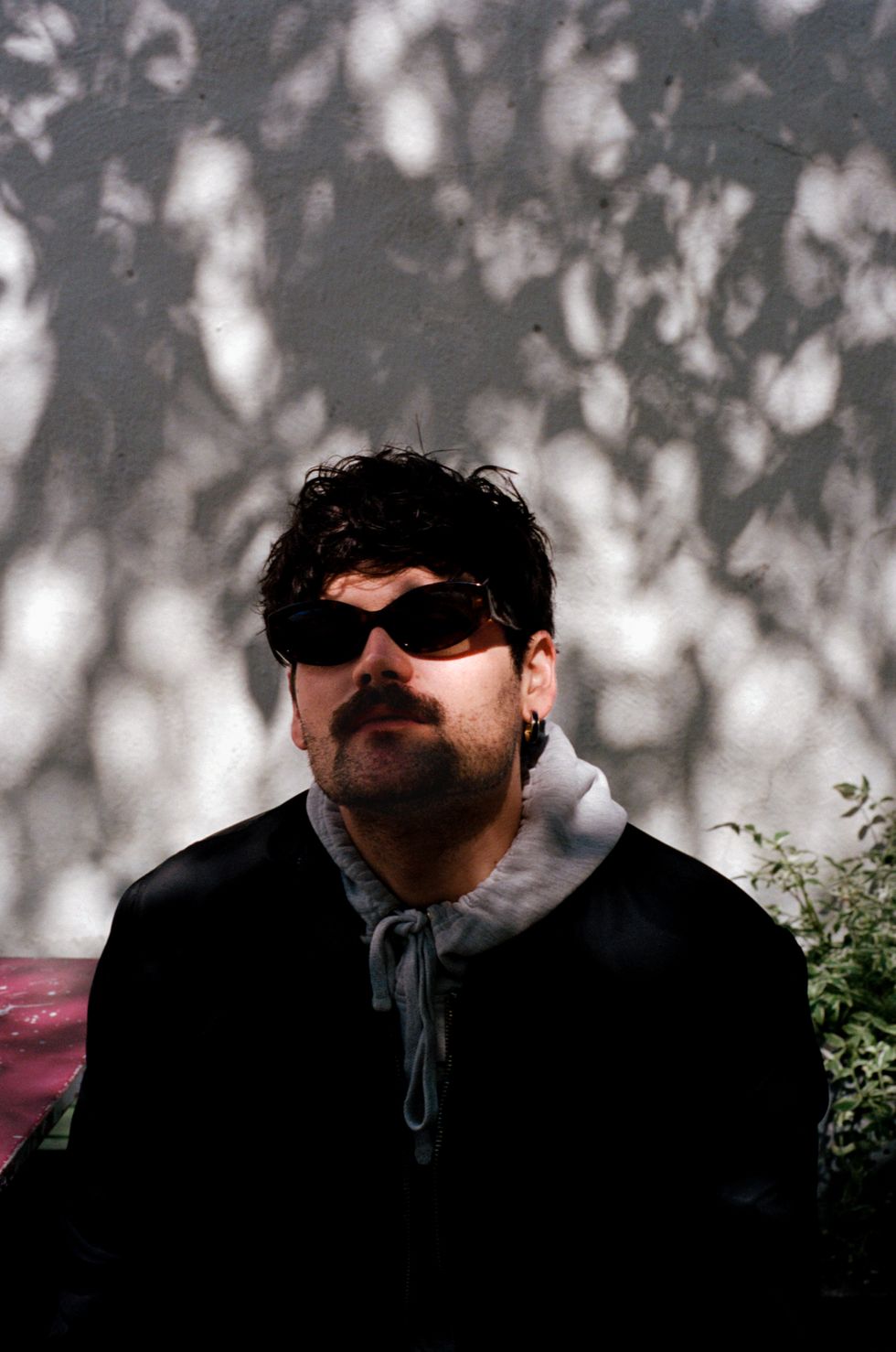
Cole, you hurt yourself at the show yesterday?
Cole Haden: Minorly.
Don’t you hurt yourself a bit every night?
Cole: The goal is to not to, but it’s kind of inevitable. If I get caught in the mosh the mic might slam into my teeth. That hurts the most. I used to get a thrill from crawling through the mosh or putting the mic down my throat.
Is that safe?
Cole: No, because the mic will get ripped out by accident. It’s really all teeth-related injuries that I’m afraid of.
Usually when I go to shows, especially if I’m writing about it, I like to have a journalistic remove. I don’t like to get in the muck too much. At your show though, I had no choice.
Cole: I didn’t see where you were standing last night.
You were close to me, but I was feeling shy. I had to avert my gaze because I was intimidated. I think you kissed my friend.
Cole: I was doing [gestures kissing people on the cheek]. There was a rumor going around once that I would go up to the crowd and do open mouth kisses on everyone. I was like, “I don’t remember doing that.”
How conscious are you when you’re navigating the space during shows? I was curious about what’s instinct versus strategy?
Cole: During sound check, I’m like a cat checking out the space. But as far as how I utilize it, I don’t practice blocking. But when there is a barricade, I stand on it. When there is a platform, I stand on it. If it’s weight-bearing, I’ll be on it.
I kept noticing there were presumably straight couples where the guy locks in on you. Do you notice this phenomenon?
Cole: It’s not the first time. If they’re a straight couple, I spend some time with the girl and then the guy, and then let them argue about it later.
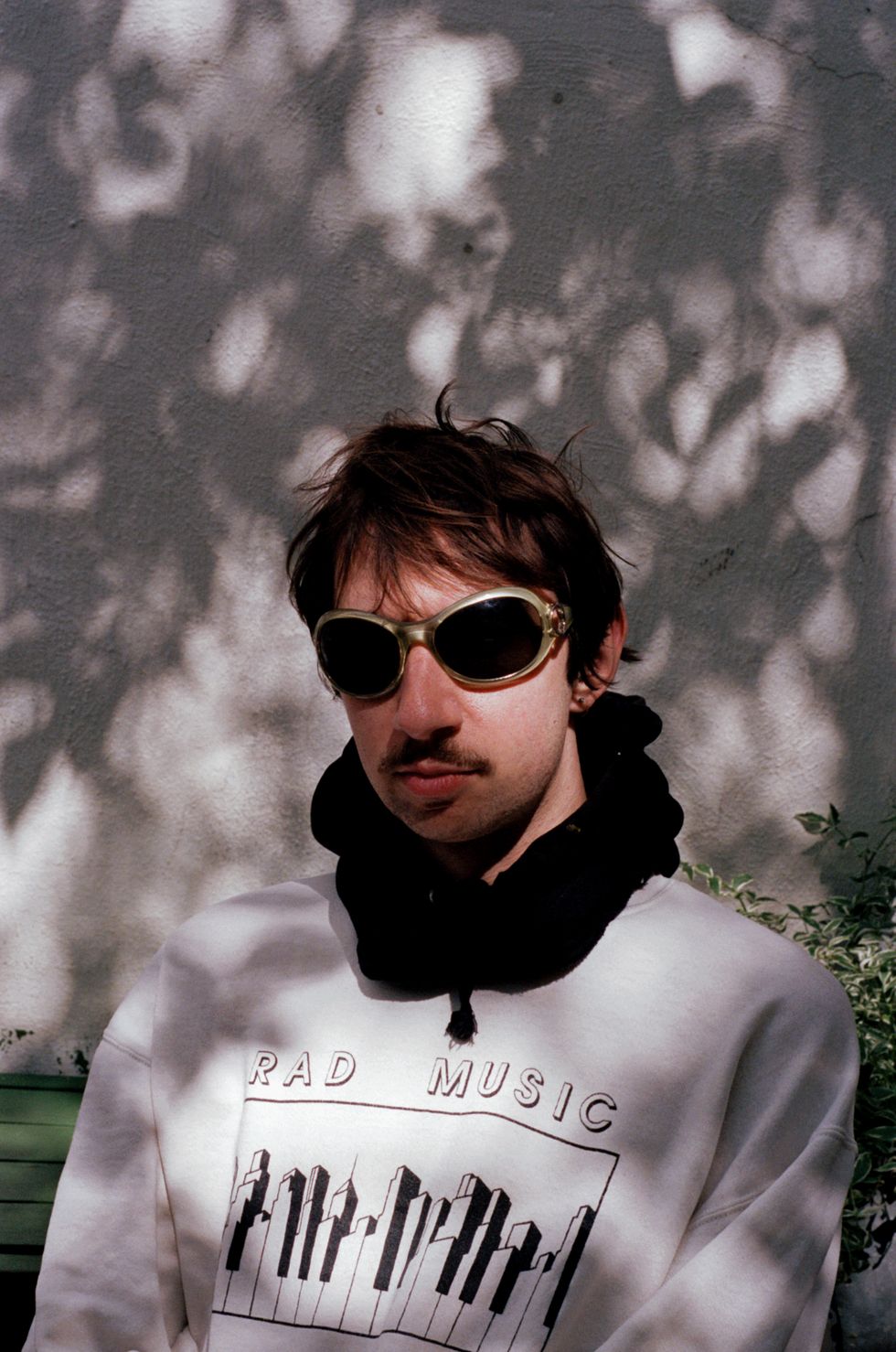
Congrats on the album. It’s moving and energizing. What’s it been like performing this material after living with the last record for so long?
Cole: Our sets are longer, but they feel shorter. We’ve only been performing it for a month, so we’re still finding all the emotional nooks and crannies. Maybe what was most surprising to me is that “Departures” became this song that is going to be a staple for when I go out into the crowd. That really wasn’t my decision to make, but that one is connecting in a visceral way. I love all the songs. You never know what’s going to be received.
Ruben: “Departures” has the biggest gap between if we play it poorly and if we play it well. The first couple times we played it, we hadn’t figured it out yet. It definitely felt like, “Oh shit, this one needs to be unlocked.” When we really lock into it and play it with groove, intention and intensity, it really goes off in a way that I didn’t realize it could when we recorded it. It’s been really rewarding to see people moving to it.
What’s your own metric for success when you’re playing live?
Aaron: Probably some sort of unanimous feeling of forgetting where you are. A lot of the older material was more actionable, like we were losing ourselves in a bit of a frenzy. My favorite show [this tour] was Seattle. That wasn’t a crazy show. It just felt really good musically and emotionally and in terms of the crowd participation. Everything was meshing.
Cole: It’s not that bigger antics make a show better. The challenge for us is that we’re aspiring to make club music, but over the course of an hour, rather than over the course of a whole night. Can we get the room to the same place that would happen if someone was dancing from 10 to 2 AM? We have to find a way to shorten the amount of time it takes to reach that kind of euphoria or a trance state.
When did an aspiration towards dance music become the mission statement of the band?
Jack: Since the beginning. We’re just aiming closer to the mark. There was a relationship between hardcore punk music and the hard music that was coming out of Berlin, and we’re trying to cross that boundary and pull it together. Now we’re honing in on actually dancing.
Aaron: We’re also caring less and less about guitar music, not from any sort of distaste or dislike, but really just not caring about what that has to do with this project. But at the same time, I definitely feel like instrumentally, the three of us care more and more about our instruments. I think for a while there was a feeling of “Fuck guitar, but I have to use guitar in this band.” And now we’re more excited to do whatever with the instrument and just [accepting] that there’s people making all kinds of stuff with all kinds of instruments. Everything doesn’t need to harken back to the most obvious source.
Ruben: Jack and I at least are coming from a punk music background. I really hadn’t listened to that much dance music, since being into dubstep at 14 — which we’ve all come back around to. Once we figured out we wanted to make dance music, we were like, “What’s dance music?” We had to learn a little bit and then just get more immersed in it. And then had to make ourselves not play into the heavy music idioms, because those were becoming a safety blanket, like, “If it’s heavy people will mosh and move to it, right?”
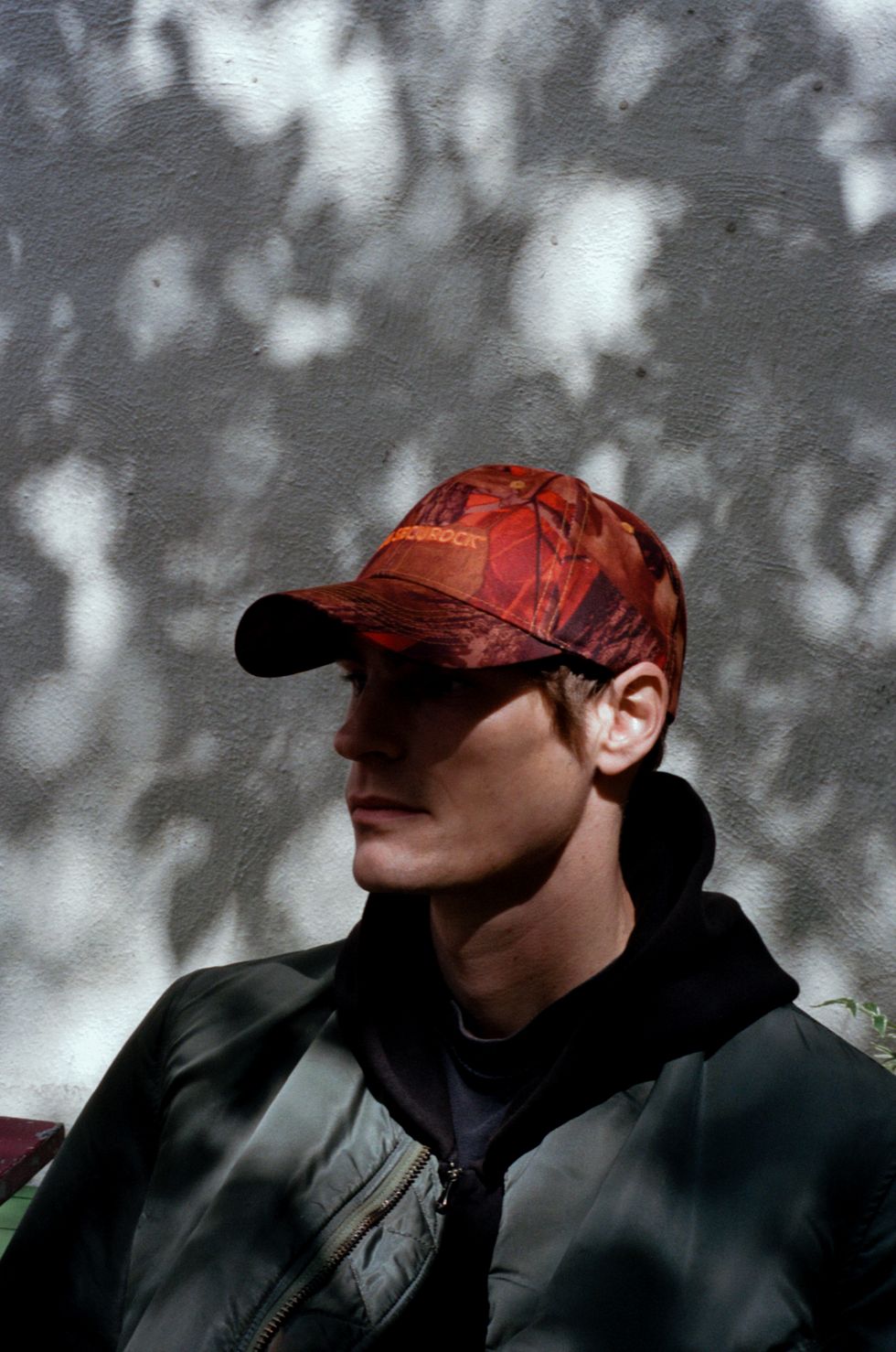
What is dance music to you guys?
Ruben: Repetition. Music that is felt first in the body and then in the head.
Cole: The best dance music to me is where your body fills in rhythmic holes that are not in the music. It’s almost like your body is necessary to make the music complete.
On this album, pop music is both a trope and also a subject. Cole, you explore specifically diva-ness and being the star. How are you thinking about the relationship between dance music and pop music on this album?
Cole: There’s always that idea of the dance chanteuse, you know, like Corona or “Rhythm Is a Dancer.” There’s that passionate female vocal over those [dance] tracks that feels almost anonymous. I wanted to have that same attitude, but with more of a concrete tie to my personal autobiographical story.
You recently worked with one of our few true pop divas, Miley Cyrus. Did that work transmute anything to Pirouette?
Cole: [Miley] gave me prompts to write about for her album, but she gave me free reign. I treated it like a writing exercise. I was thinking about the music that she had written, but really, for myself. She is a rare breed, but we’re cut from the same cloth in the sense that she wants authenticity. I trusted myself a lot more by the end of the process of writing for her, because in the end, I just read it like I was writing for myself.
Was it immediately clear that you were going to be much more autobiographical and explicit about your life on this record when you began to write?
Cole: No, I was avoiding committing [to that] because it made me uncomfortable at the start. And then my challenge to myself was to be as transparent as possible. Once I decided that that was the route that I was going to take, that became the challenge.
Was that a personal challenge, or did that feel like a shared question as a band?
Cole: We all pushed ourselves on this record. The lyrics are one aspect of it that fulfilled that thing for me.
Aaron: There was a three-part thing of Cole trusting himself, having to trust each other and ourselves, and as a collective having to trust that the music even deserved to exist, especially with what was weighing on us the past couple years.
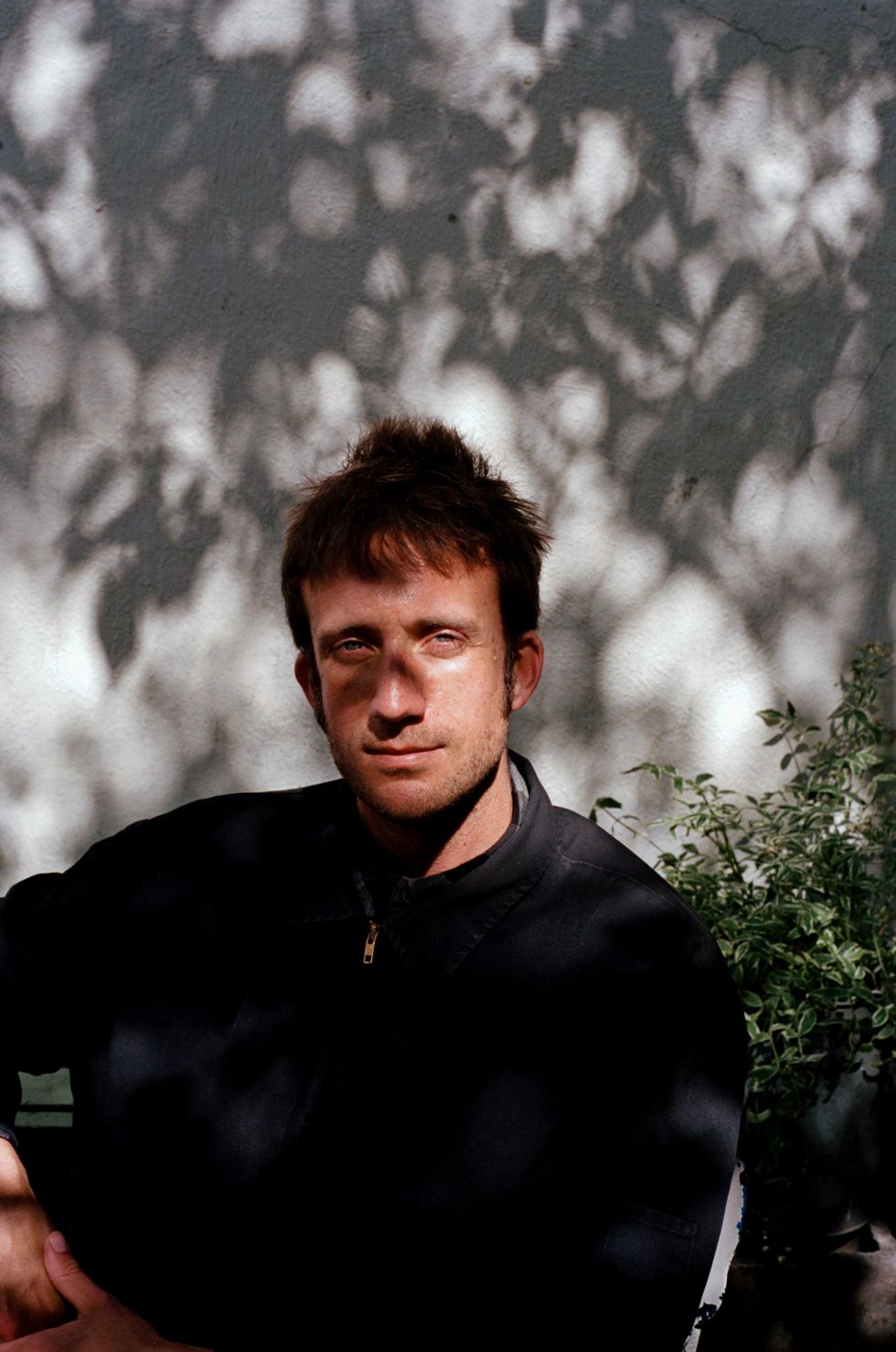
Can you say more about what was weighing on you as a band?
Aaron: There are definitely some days going into writing where you realize there’s so much going on that this really has nothing to do with. At the very least, this is taking up space in ourselves when we at times felt like we didn’t have emotional bandwidth to do these songs justice. And then on the flip side: sometimes it’s hard to give a shit about playing guitar, right?
Cole: And on the only beautiful day of the week, we’ve decided we’re gonna go sit in a dark room right for four hours.
Have you convinced yourselves that it is ultimately worth it?
Cole: We learned through the first album that you have to make the journey fun, so that you can look back on it and laugh and smile about it. The first journey we went on wasn’t super fun.
Define fun?
Cole: We put a lot of pressure on ourselves. It was indicative that we felt a responsibility to make something that we’re proud of, but that can look a million different ways. On this album, there were times going into the creative zone that we took care to make this process not as much of a chore.
Aaron: We had to come to the realization that shit can be falling apart, but the only thing that we have power over is the community that we participate in. If nothing else, that is valuable. On our second show on this tour, our tour manager was at the merch booth and goes, “Damn, there are so many trans women here. Has it always been like this?” Last album cycle there wasn’t. Cole wanted to make an album that was more queer. The people who are coming to our shows are recognizing that and commenting on it, and it means a lot to them. That has nothing to do with what we were freaking out about in the world a year and a half ago when writing some of these songs, but that matters. That’s where this project is best positioned to make a difference: that sort of community-building, holding hands through horrible shit.
It’s quite a meta record about the experience of becoming a rock star, but also about feelings surrounding queer adolescence and shame. I’m curious about how this deep childhood stuff came up for you, Cole, amidst this wave of validation from the band’s success?
Cole: These themes are not things that arose for the first time in between the records. But when I’m talking about dancing in my room alone and now, I’m performing for an audience… It’s almost like I’ve always been rehearsing for a moment like this. It felt very poignant to reflect on how I perceived myself as a child and thinking about how I thought about my future self and now being that future self.
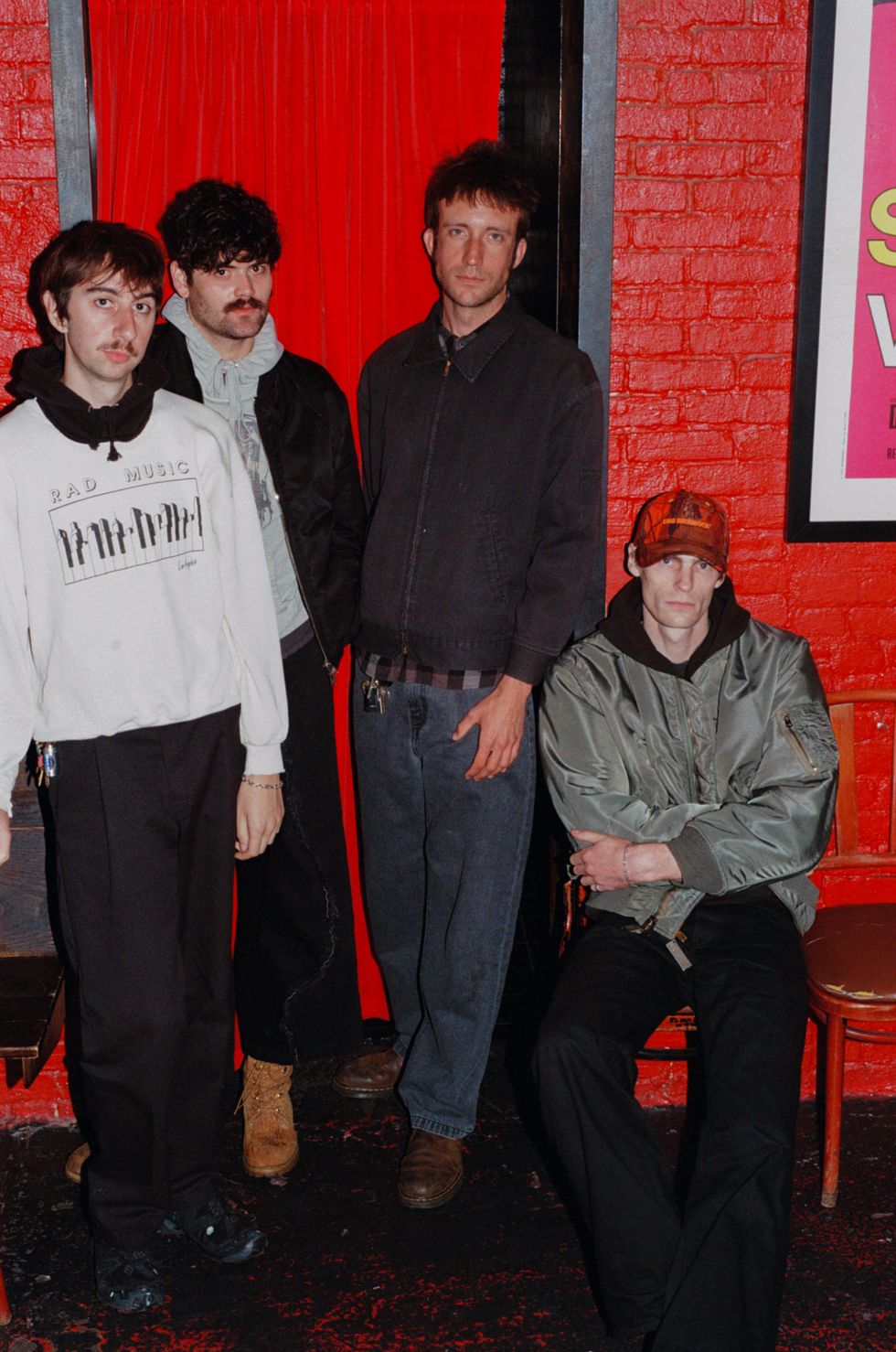
How does the reality of enacting your dreams measure up against your childhood fantasy?
Cole: It never looked like this in my head. It was definitely a seated theater. But I’m very happy doing this. But that’s my job: to bring that energy to a standing room-only show.
Was there a moment you had to let go of a more traditional fantasy?
Cole: Once I became too tall to play Billy Elliot on Broadway, I let go. I would love to do Broadway one day, but especially through doing this, I learned that my limit doesn’t even come close to playing eight shows a week. I have to really get into a different kind of head space to perform like that. Those are Olympic athletes on Broadway. And also, this [music now] is the right thing for me, because I realized that the kind of material that I want to perform would be things that I had a creative role in writing.
Was there a song that clarified what this album was about?
Cole: “Doves.” It was the first song with a finished form. And the allegory in that song is a coming out story. And then that became the most poeticized story on the album. And then it just gets more specific and literal from there.
When did you write the interlude, “Headlights”?
Cole: That was the last thing. It felt like I had been keeping that to myself for 15 years and I didn’t want to keep it to myself anymore. It felt like what I had been emotionally preparing myself to say up until that point. It was a release for me. I had left the studio early to see Oh, Mary!… this album is gay, through and through. I just recorded it alone as a voice memo and sent it to the band, 30 minutes before the album was finished. I shed a tear. I turned my phone on airplane mode and took the train to see Cole Escola in Oh, Mary!
Aaron: We listened back to it and it was really quiet. We were like, “Well, that was really fucking intense.” [band laughs]
I’m curious about you as a band, as a collective, holding these very personal stories that are directly from Cole’s life. What’s that experience like for all of you while on stage?
Aaron: I only look down the whole time.
Cole: They’ve seen it enough. They pretty much “get” the Cole show.
Aaron: If I actually get to witness something Cole is doing, it’s so fucking hilarious. Usually, I’ll look at Jack and Ruben, we’re all just laughing, I like the idea of someone watching the show being like, “This is so fucking intense and serious.” And then they see Cole doing some bullshit and see us all, smiling and laughing, like, “Oh, they’re having fun.”
Cole: I’m laughing, too. People can come as they are to our shows. A misconception about our shows is that people need to prepare themselves to come. Don’t come expecting an intense experience. Going back to what defines a successful show: to me, it’s one where it feels like by the end of the show there’s a shared sense of humor. There are certainly a lot of sincere and important moments to the performance and the music. But what is unique to each show is that specific winking sense of humor that comes from just the cohort of people being different every night, and then all of us finding an inside joke by the end of the night.
I mean, ultimately, Cole, you’re domming the crowd. There’s a humor to that.
Ruben: When he has to.
Cole: If you don’t dom them, it’s easy to be taken over. They will certainly take the reins if you don’t keep your eye on the road.
Photography: Matthew Wille
Location: Singers
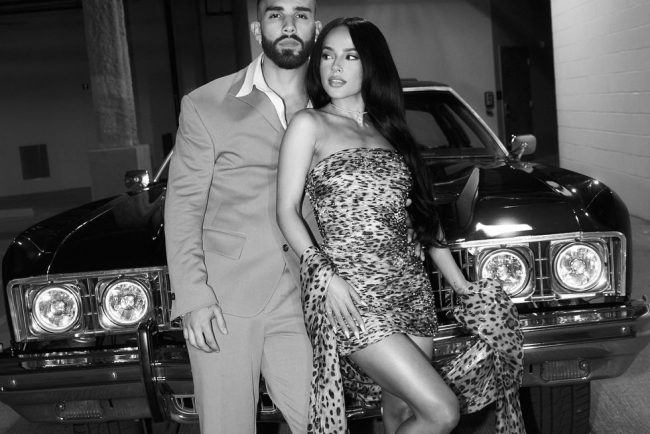
Manuel Turizo Takes Us Backstage at His First AMAs
Colombian hitmaker Manuel Turizo has officially entered his awards show era — and he did it in style. For his first-ever American Music Awards appearance, the Latin GRAMMY-nominated, the U.S. Platinum-certified artist took the stage alongside Becky G to debut their fiery new collab “Que […]
Music
Colombian hitmaker Manuel Turizo has officially entered his awards show era — and he did it in style. For his first-ever American Music Awards appearance, the Latin GRAMMY-nominated, the U.S. Platinum-certified artist took the stage alongside Becky G to debut their fiery new collab “Que Haces,” a steamy tropical track that’s already climbing the charts and racking up streams.
But before the spotlight hit, Turizo let PAPER in on the behind-the-scenes moments that made the night: last-minute rehearsals, tailored Dzochen suiting and even a pit stop at the gym (priorities). He kept things personal, sporting a custom “201” chain — a tribute to his apartment in Montería and the title of his latest genre-hopping album and upcoming tour.
At just 25, Turizo’s been dubbed GQ México’s Musician of the Year, landed on Forbes’ 30 Under 30, and collaborated with the likes of Shakira, Marshmello and Grupo Frontera. But the AMAs marked something new — a stateside crossover moment that felt both massive and unmistakably him.
Scroll through for exclusive photos and commentary from Turizo himself, including his favorite pre-show rituals and that AMIRI performance look that sealed the deal.

We’ve made it to perform at my very first American Music Awards! Off the plane and to rehearsals we go.


The incredible Becky G and I before performing our collab entitled ‘QUE HACES’ for the very first time, live.

No matter where in the world I am, it’s important to me to get time to myself and hit the gym during a break.






Love this tailored look from Dzochen.


Anyone recognize the car from the music video?



I love getting the opportunity to talk about all the exciting things I’m working on with those who support me.

Changed into this AMIRI look ahead of the performance.

Leave it to Becky to have us arriving in style.
Photography: Gabo Bucheli
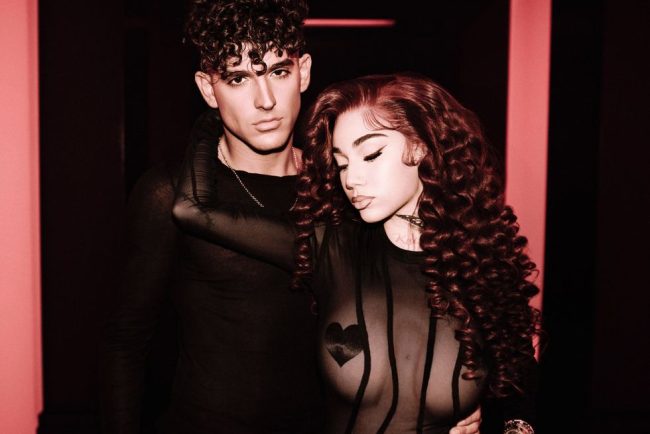
Bhad Bhabie and Benjamin Elgar Get Sexy on 'Hoe'
Rising pop sensation Benjamin Elgar has already turned heads with sultry singles “Better Tho” and “Too High.” Now, the Paris-born singer is turning up the heat by teaming up with internet and music sensation Bhad Bhabie on new single, “Hoe.” Dancing with a crowd of […]
Music
Rising pop sensation Benjamin Elgar has already turned heads with sultry singles “Better Tho” and “Too High.” Now, the Paris-born singer is turning up the heat by teaming up with internet and music sensation Bhad Bhabie on new single, “Hoe.”
Dancing with a crowd of glistening men in the video, Elgar is bringing a rare attitude and claiming his space. “I made ‘Hoe’ for anyone who’s ever been called too much for being loud, confident, or unapologetically themselves,” says Elgar. “It’s not just a song, it’s a statement. A middle finger turned into a power anthem. I wanted it to feel bold, unfiltered and alive. When people watch this, I want them to feel sexy and powerful.”
Tapping Bhad Bhabie was the right move for a song that seeks to exude power and gravitas. Bhad Bhabie, internet mogul and digital darling, has used her music to express her perspective and strength since her debut, “Gucci Flip Flops.”
“I loved this song. As soon as I heard it and couldn’t wait to go cut my verse,” Bhad Bhabie tells PAPER. “It was fun working on something more pop than I’m used to. Although I don’t really make records like this myself, I secretly listen to a lot of this type of stuff,” she shares. In the video, Bhad Bhabie poses and delivers her hard verse in front of a fearsome wall of fire.
“Benjamin is an incredible performer and dancer and I had a lot of fun shooting the video,” she says. “I can’t wait for everybody to see it.”
Good thing for fans, the video is now out. And more music from Elgar is on the way.



Photography: Alex Loucas


